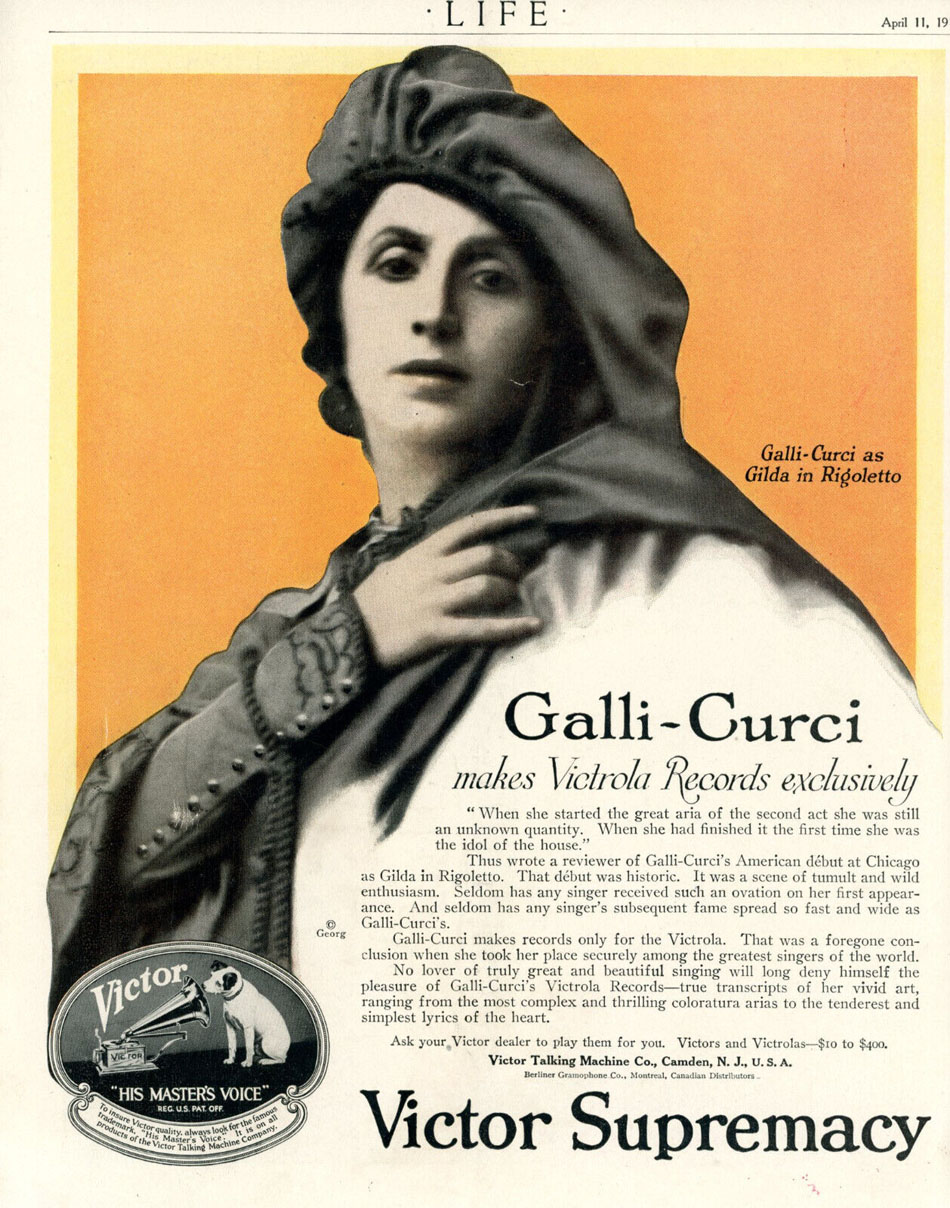At
Home or at the Opera
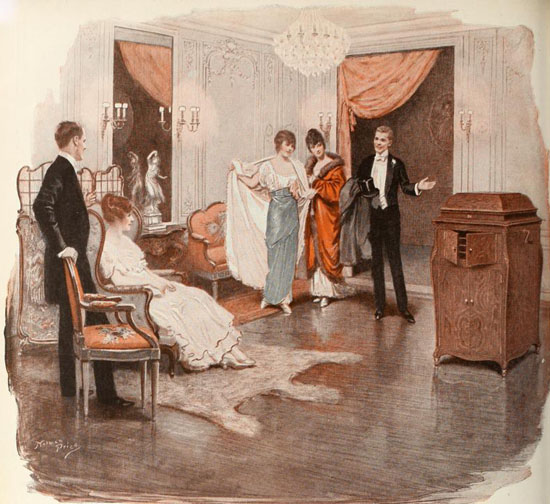
.
To convince consumers
that the recorded voices of Caruso and other opera stars were portrayed
with 'absolute fidelity' and worth the premium price of those records,
the phonograph industry offered several advertising assurances.
First, said the ads,
recording quality had reached a level that could be trusted because
the greatest artists of
the world wouldn’t make records if they didn’t believe it was true
to their artistic interpretation with voices "as clear and
true as life itself."
Reality could be recreated with recorded sound. In 1929 L' Artiste
Phonograph company's advertising phrase and logo summarized this
succinctly: "The Artist in Reality."
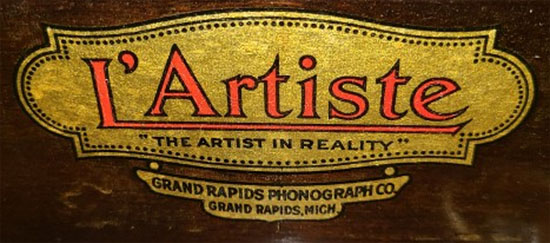
"The Artist in
Reality" - L'Artiste, 1929
Second, these recordings
would be the legacy of the opera stars and prima donnas. Since recordings
were going to live forever then no one would ever release a recording
that would tarnish their artistic reputations. Victor records, it
was advertised, will perpetuate
"their art forever" and "immortalize them."
Third, it was in the
contract: The Victor Talking Machine Company said any record that
did not meet the artists expectations could be rejected by the artist.
"Every Victrola Record is approved by the artist who made it
Our contract demands
it."
Fourth, these were the
greatest artists, highly paid with most exclusive
to their respective labels. The cost of a record, therefore, was
a great value considering
the artists' salaries and how much you saved by not going out
to the opera or theatre.
Fifth, by hearing the
greatest artists in the comfort
of your home "you experience the same thrill of delight that
comes when attending their actual performances." You are in
exclusive company listening to opera records, the "highest
class" of entertainment and you can do it right in your own
home.
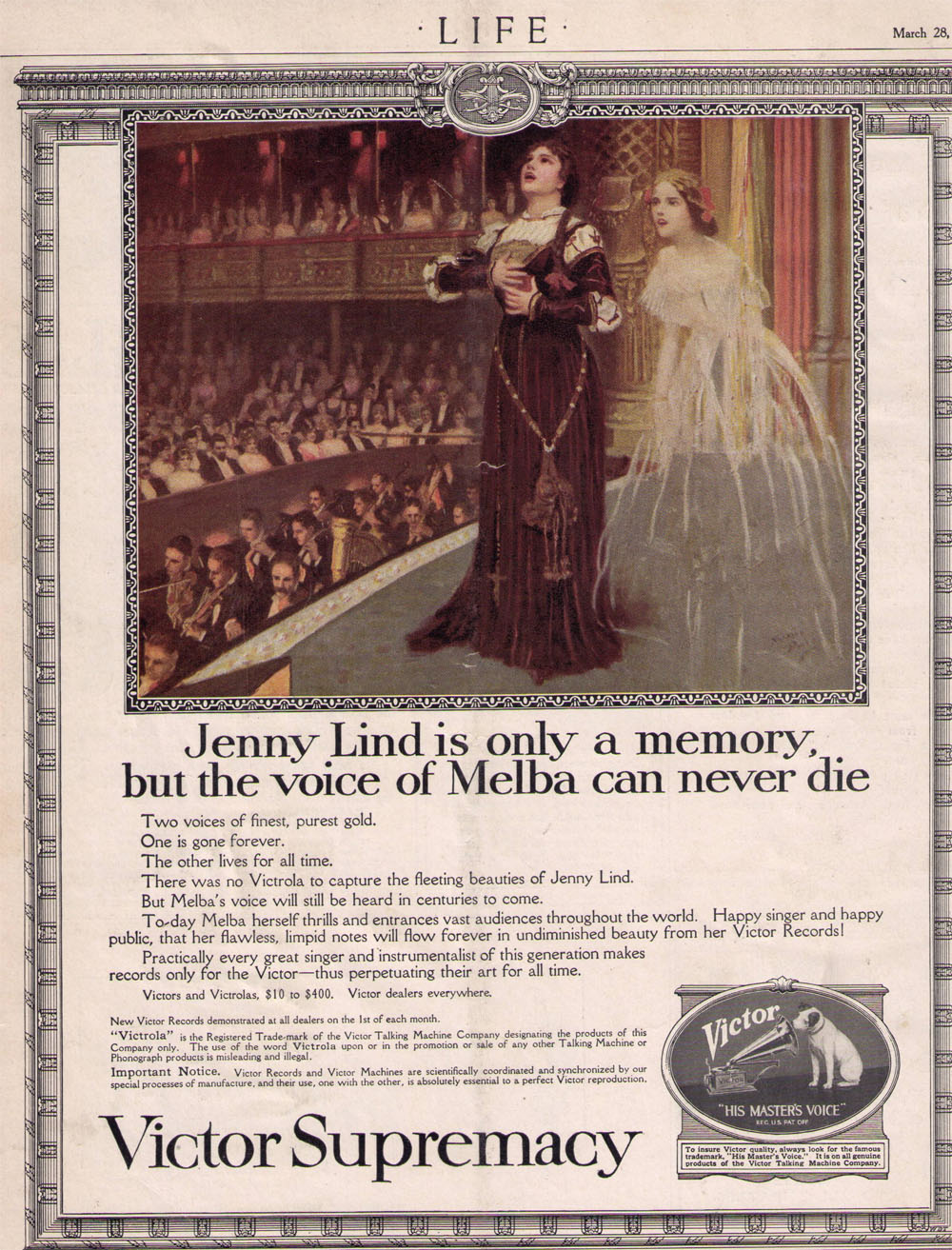
"Practically every
great singer and instrumentalist of this generation makes records
only for the Victor--thus perpetuating their art for all time. Life,
1918 (PM-2008)
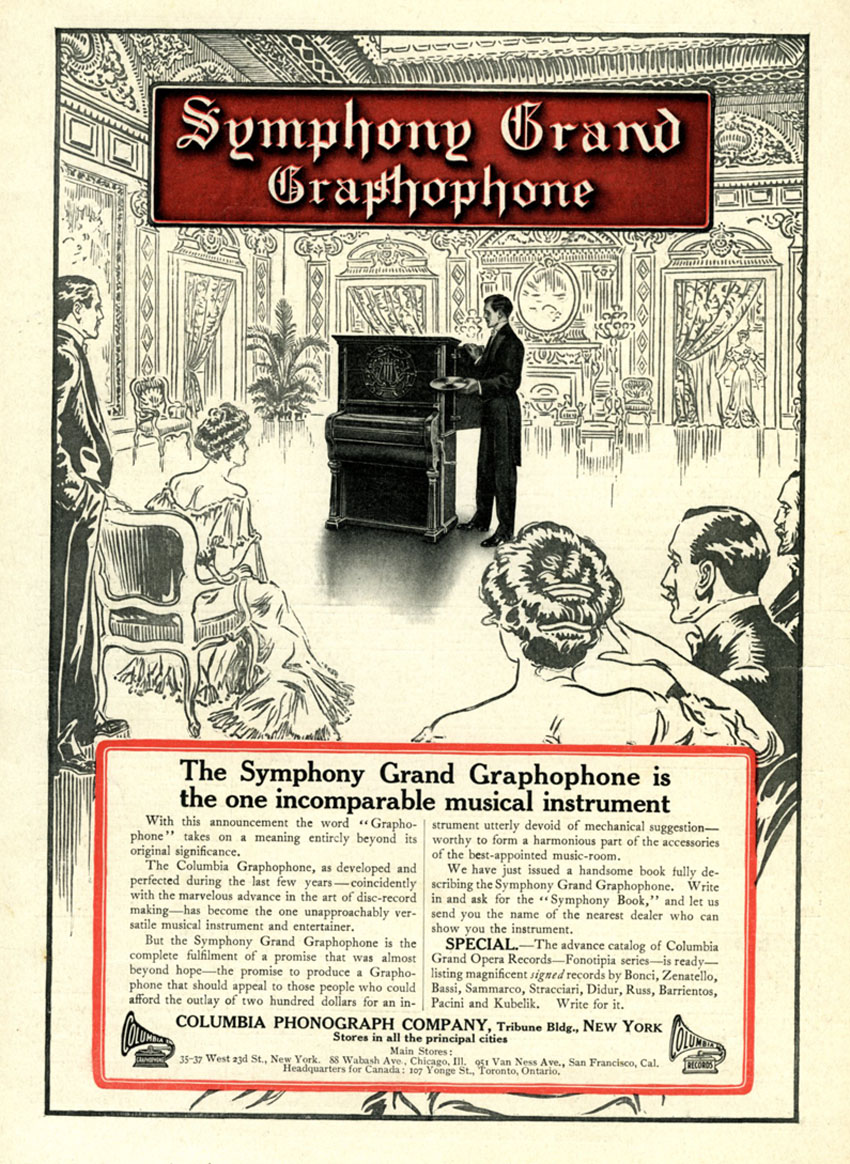
"Worthy to form a harmonious
part of the accessories of the best-appointed music-room." The
Literary Digest, 1908 (PM-2010).
"Galli-Curci makes
Victrola Records exclusively" - Victor Supremacy, April 11,
1918 Life
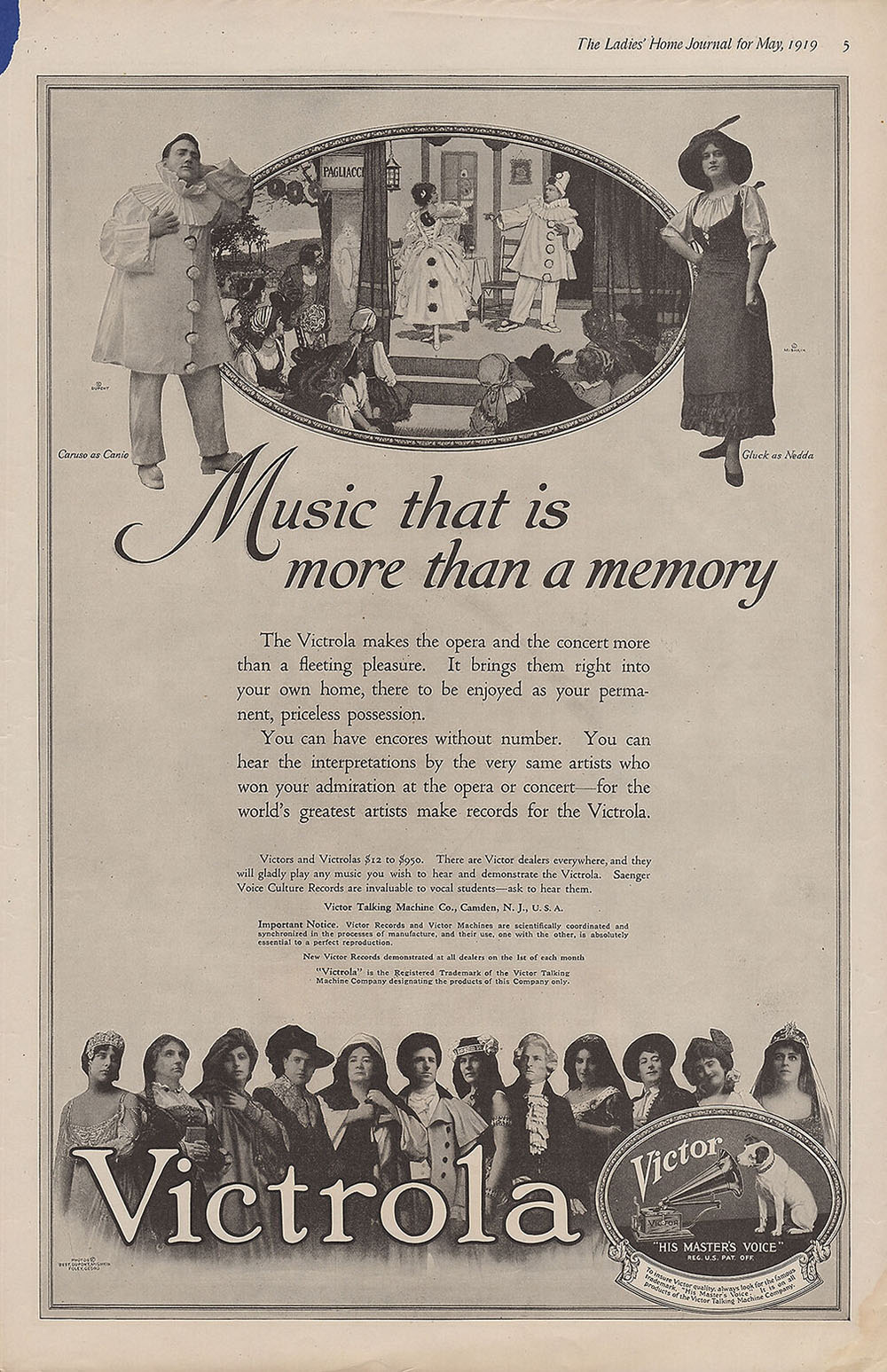
The Victrola brings
the opera and concert "right into your own home, there to be
enjoyed as your permanent, priceless possession. The Ladies'
Home Journal, May 1919
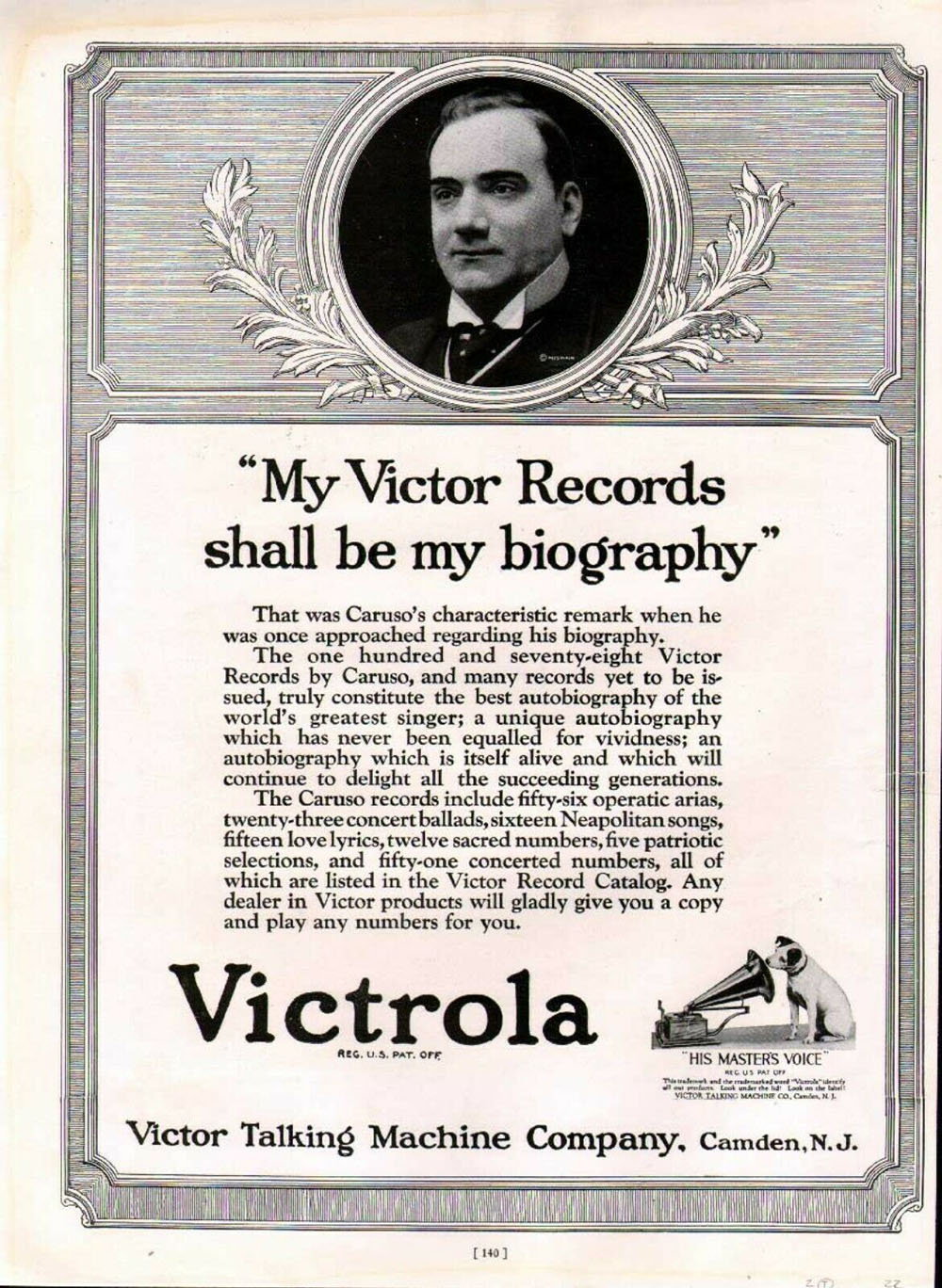
"Victor Records
by Caruso truly constitute the best autobiography which has never
been equaled for vividness..." 1922 (Caruso
died on August 2, 1921)
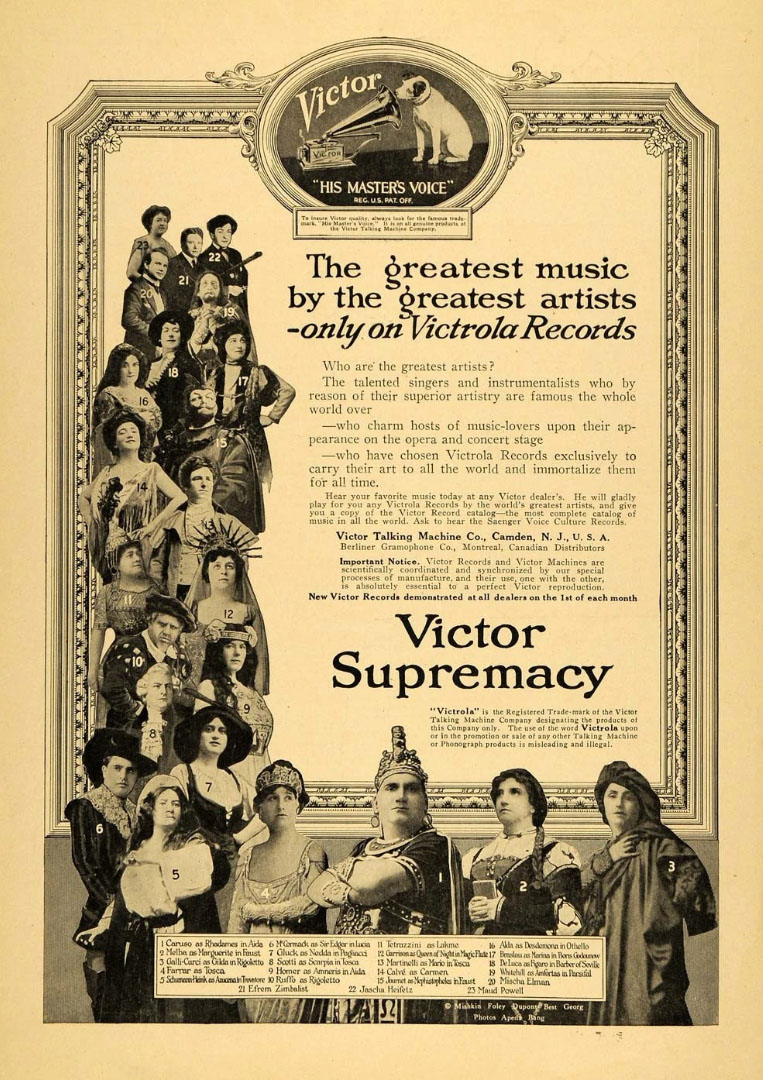
The greatest artists
"have chosen Victrola Records exclusively to carry their art
to all the world and immortalize them for all time," 1918"
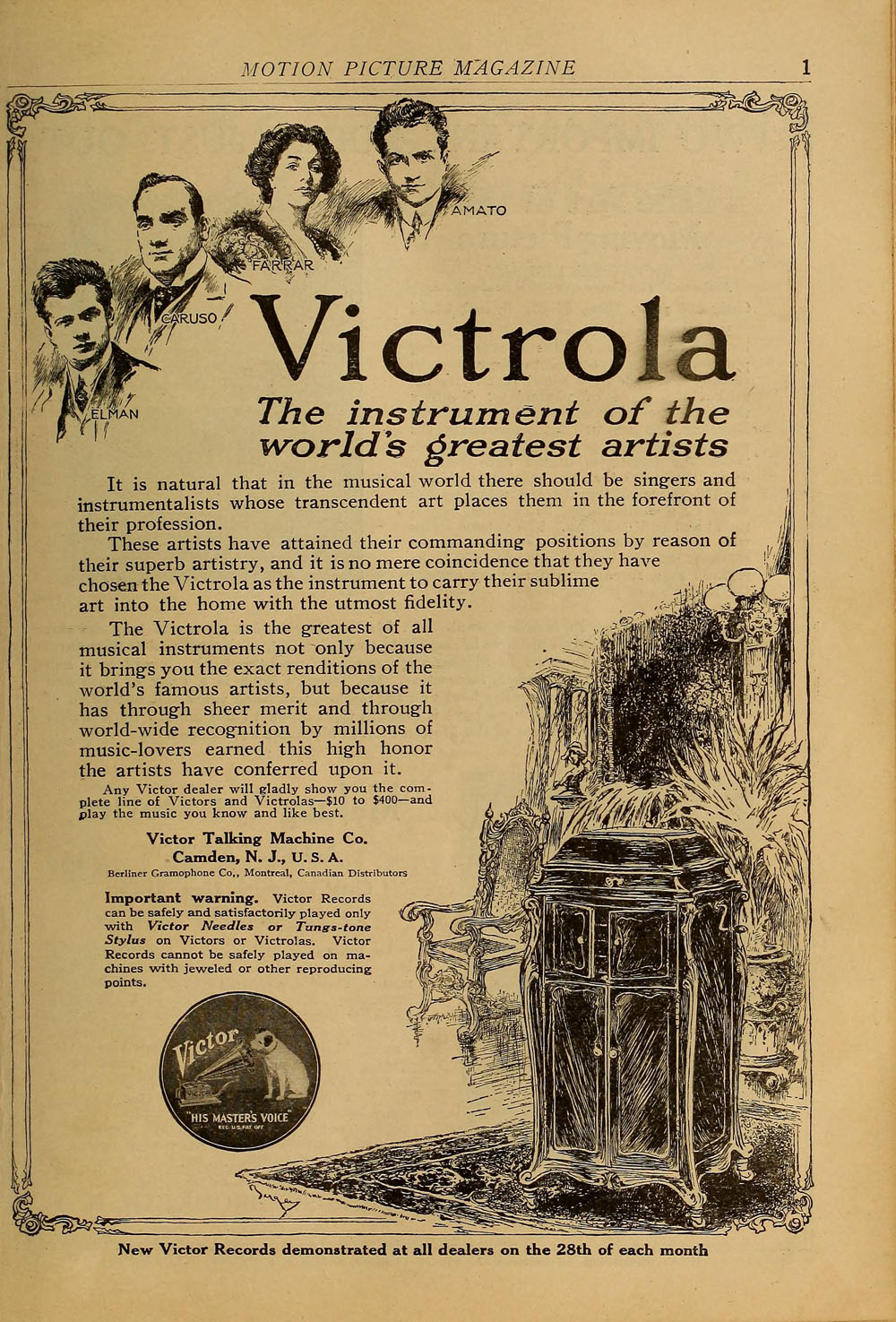
Motion Picture Magazine,
1916
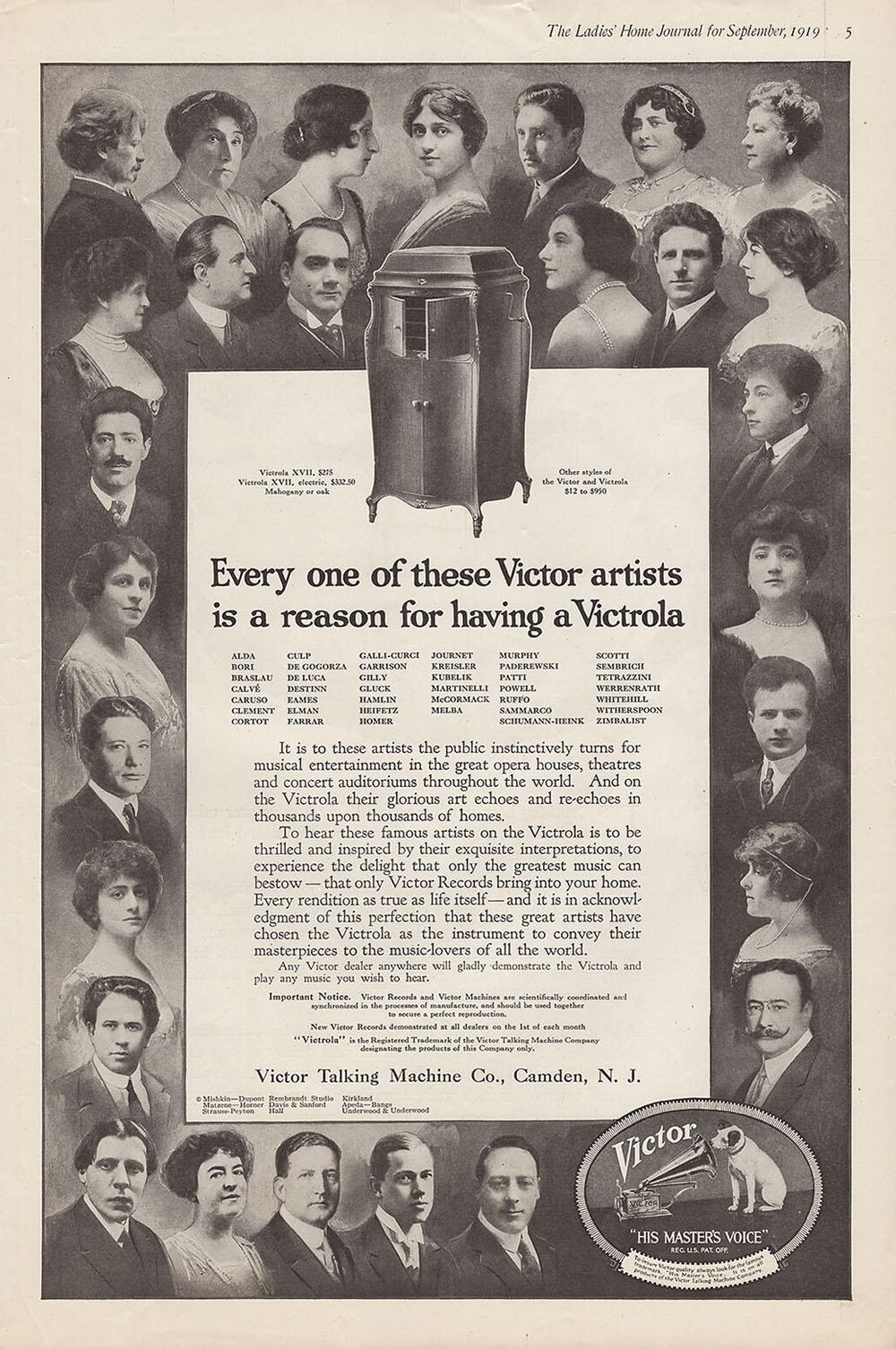
"Every
rendition as true as life itself -- and it is in acknowledgment
of this perfection that these great artists have chosen the Victrola..."
The Ladies' Home
Journal, September 1919
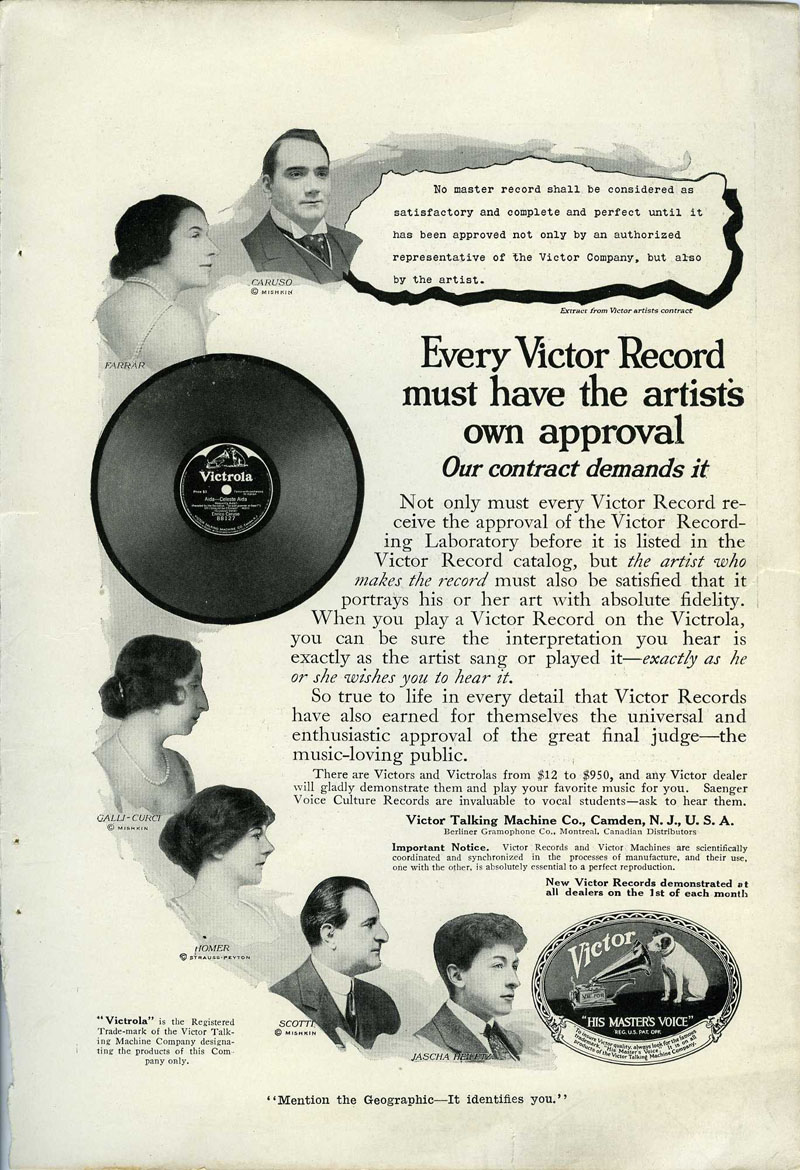
The National Geographic
magazine , 1919 (PM-2086)
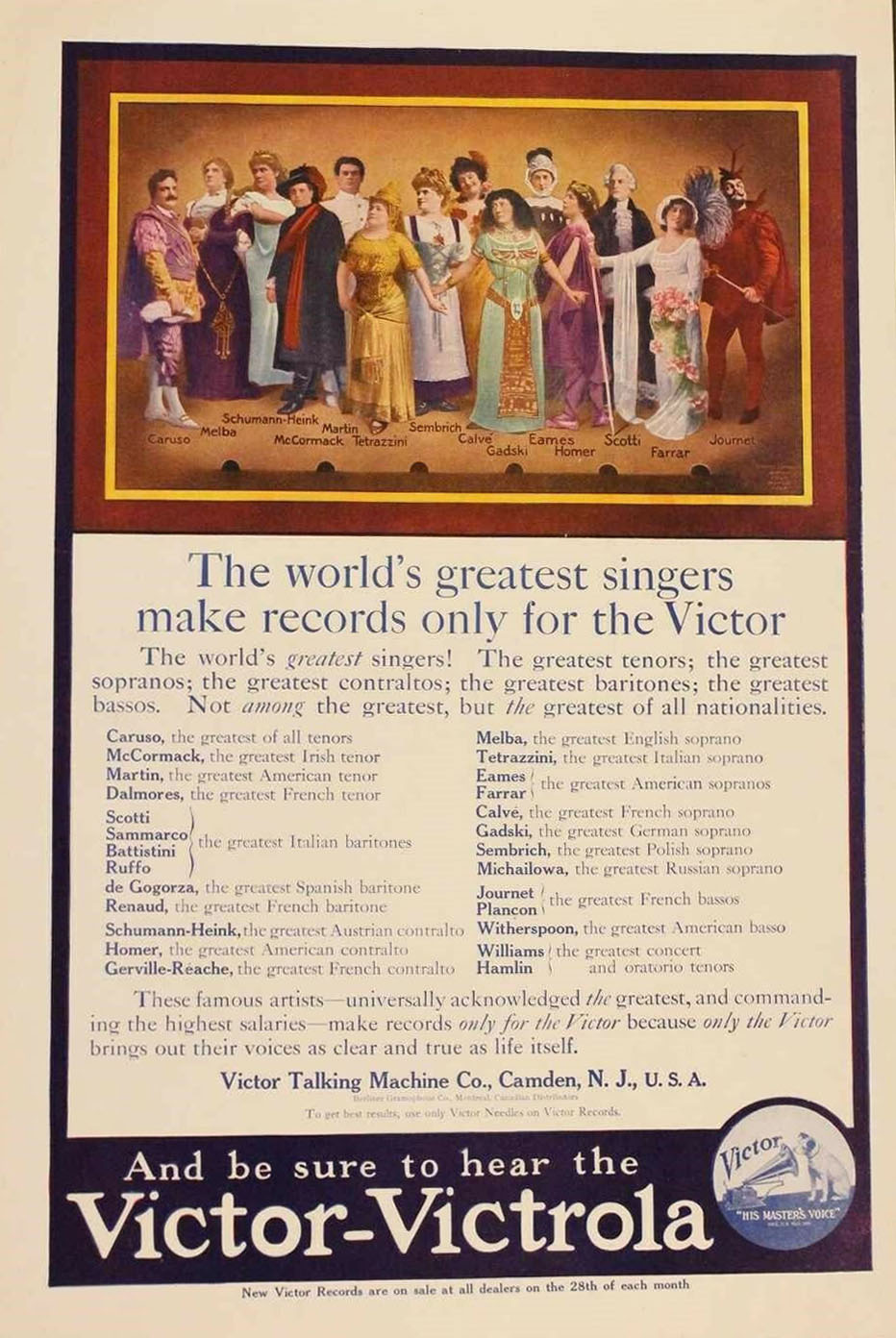
"These
famous artists---universally acknowledged the greatest, and
commanding the highest salaries -- make records only for the Victor
because only the Victor brings out their voices as clear
and true as life itself" 1911
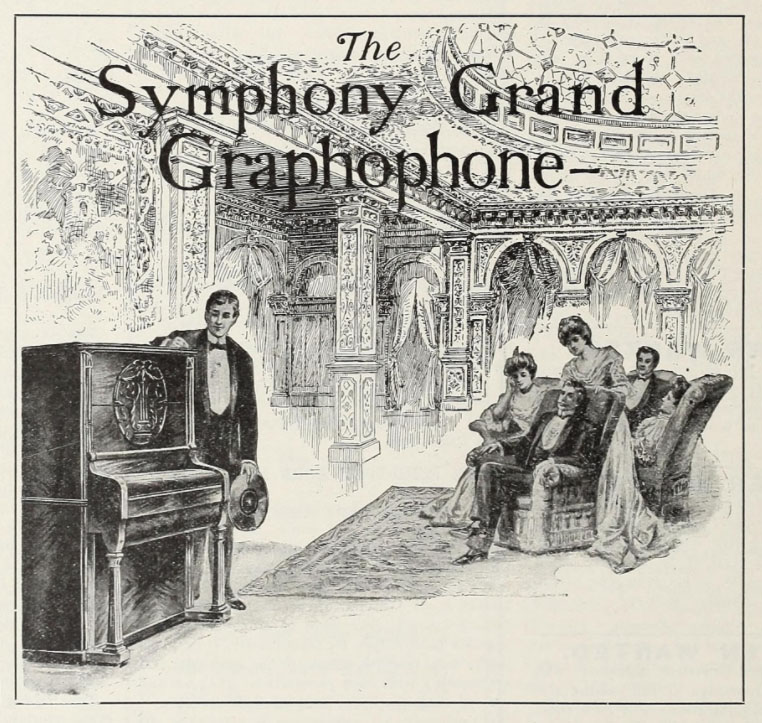
Columbia Phonograph
Company, The Talking Machine World, May 15,1908
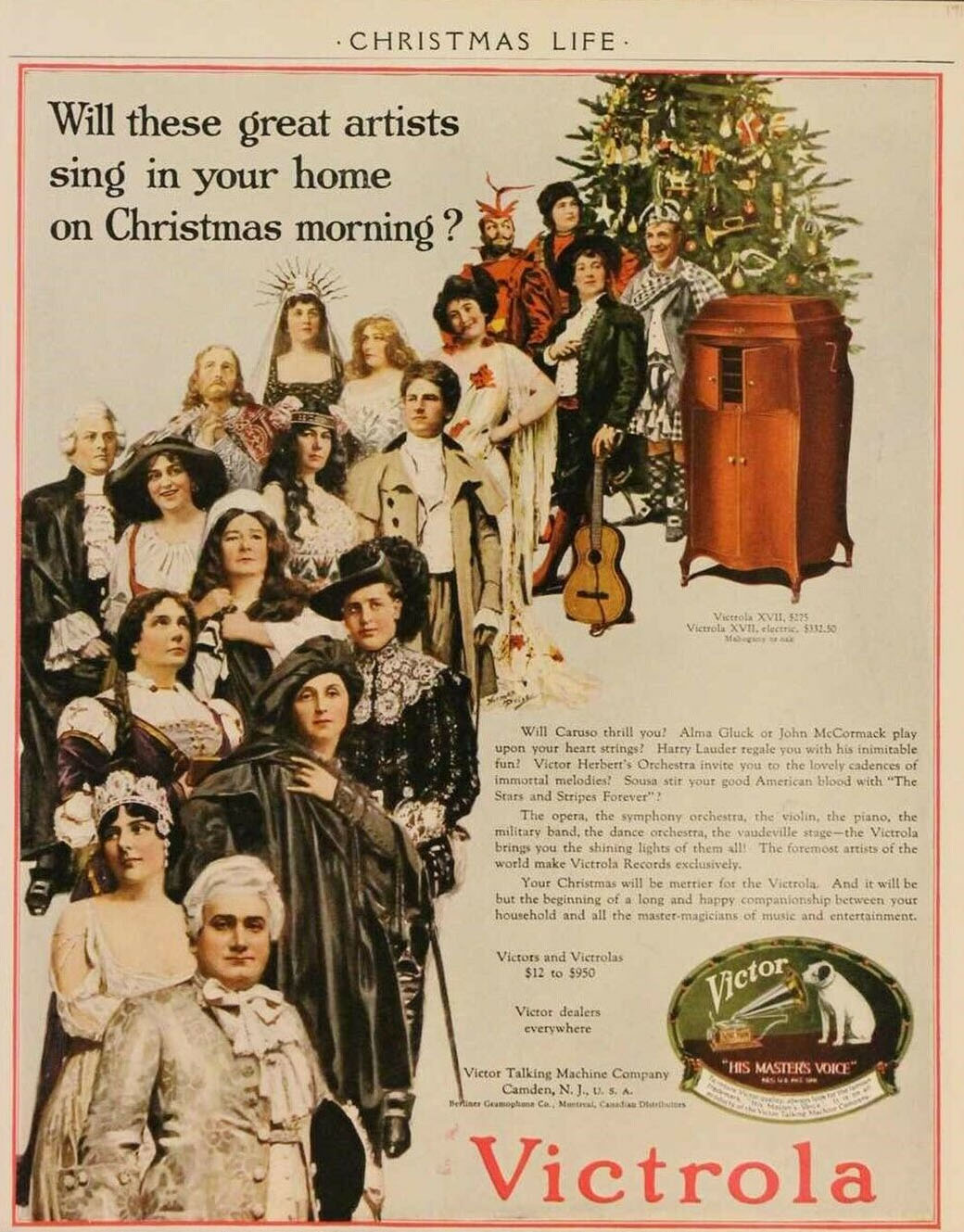
Will the "master-magicians
of music and entertainment", these "great artists sing in
your home on Christmas morning?" "The foremost artists of
the world make Victrola Records exclusively." Victrola, 1918.
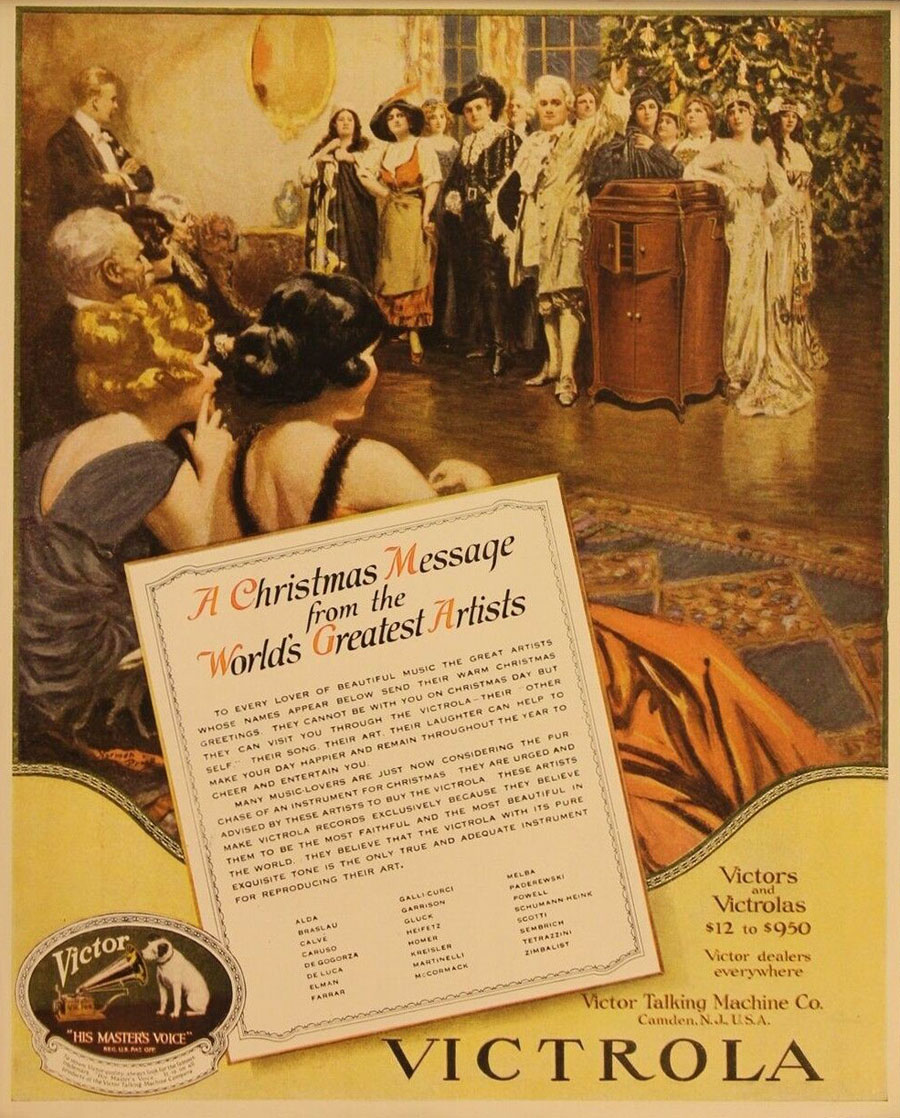
This Christmas Message from the World's
Greatest Artists pictures those artists inside someone's elegant
house. However, the ad doesn't use the words "reality" of
performers coming to your house (like many ads did); instead, this
ad says that "they cannot be with you on Christmas Day but
they can visit you through the Victrola -- their other self."
Victrola. 1919
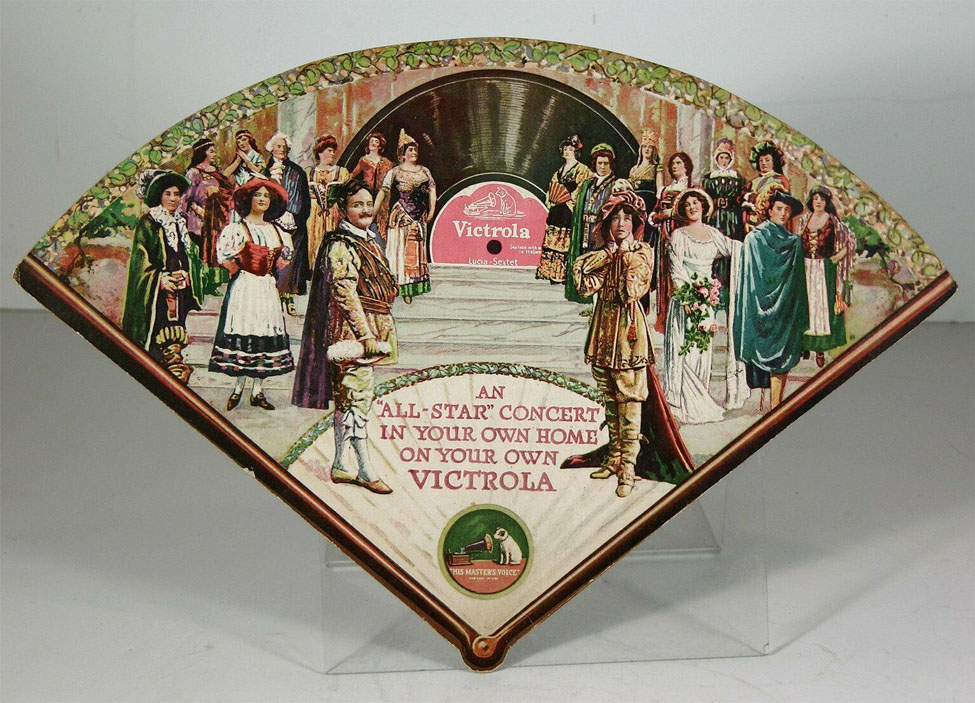
An "All-Star"
Concert in Your Own Home
1921 Victor Chromolithograph
Advertising Fan
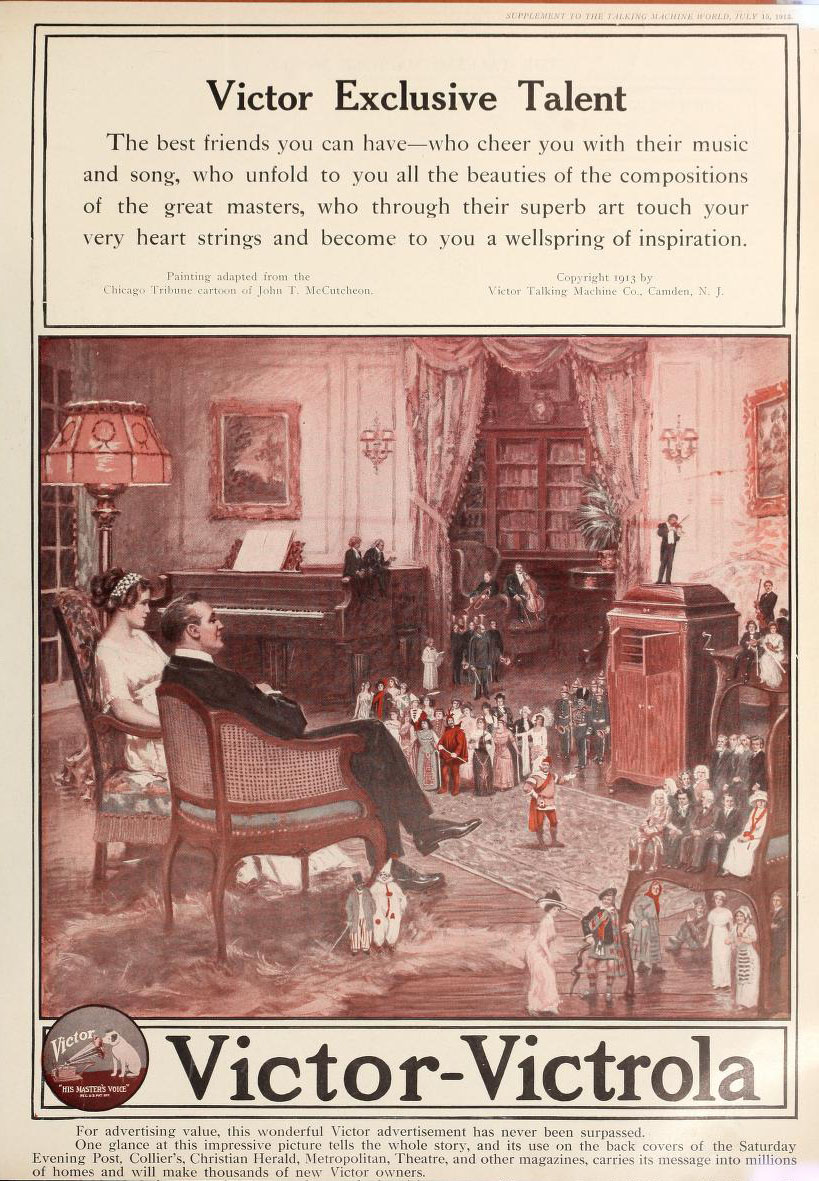
Talking Machine World,
1913
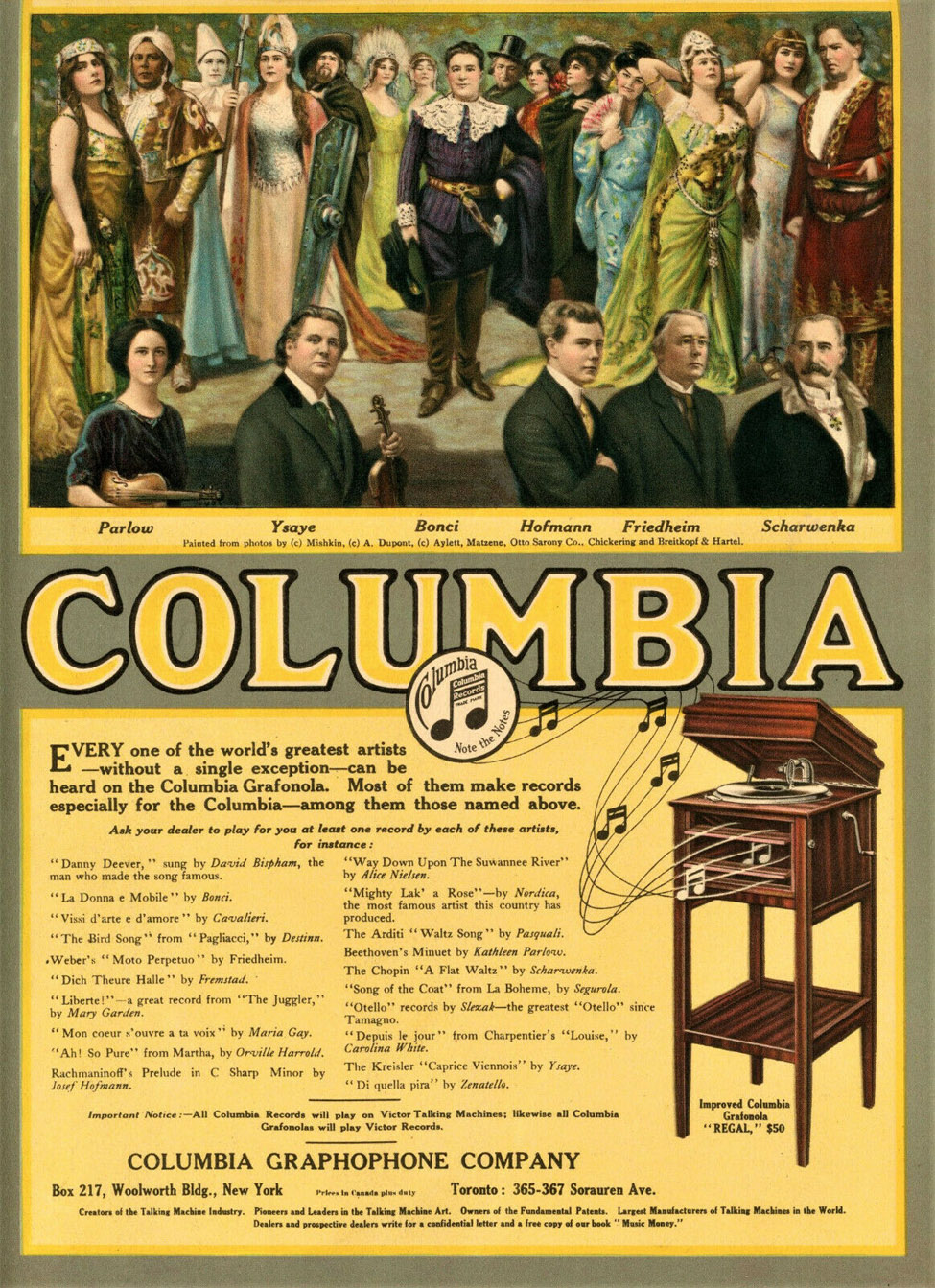
"EVERY one of the world's greatest
artists -- without a single exception -- can be heard on the Columbia
Grafonola. Most of them make records especially for the Columbia--among
them those named above." Columbia ad c. 1913.
"EVERY one of the
world's greatest artists," however, obscures the difference between
the records of the world's greatest artists being heard (played)
on a Columbia Grafonola as opposed to those records of the world's
greatest artists actually being made by Columbia. Additionally, when
Columbia says that the number of the "world's greatest artists"
making records for Columbia is "most of them" (which would
be an interesting count) they also seem to be trying to define 'especially'
and 'exclusively' as synonyms -- which they are not.
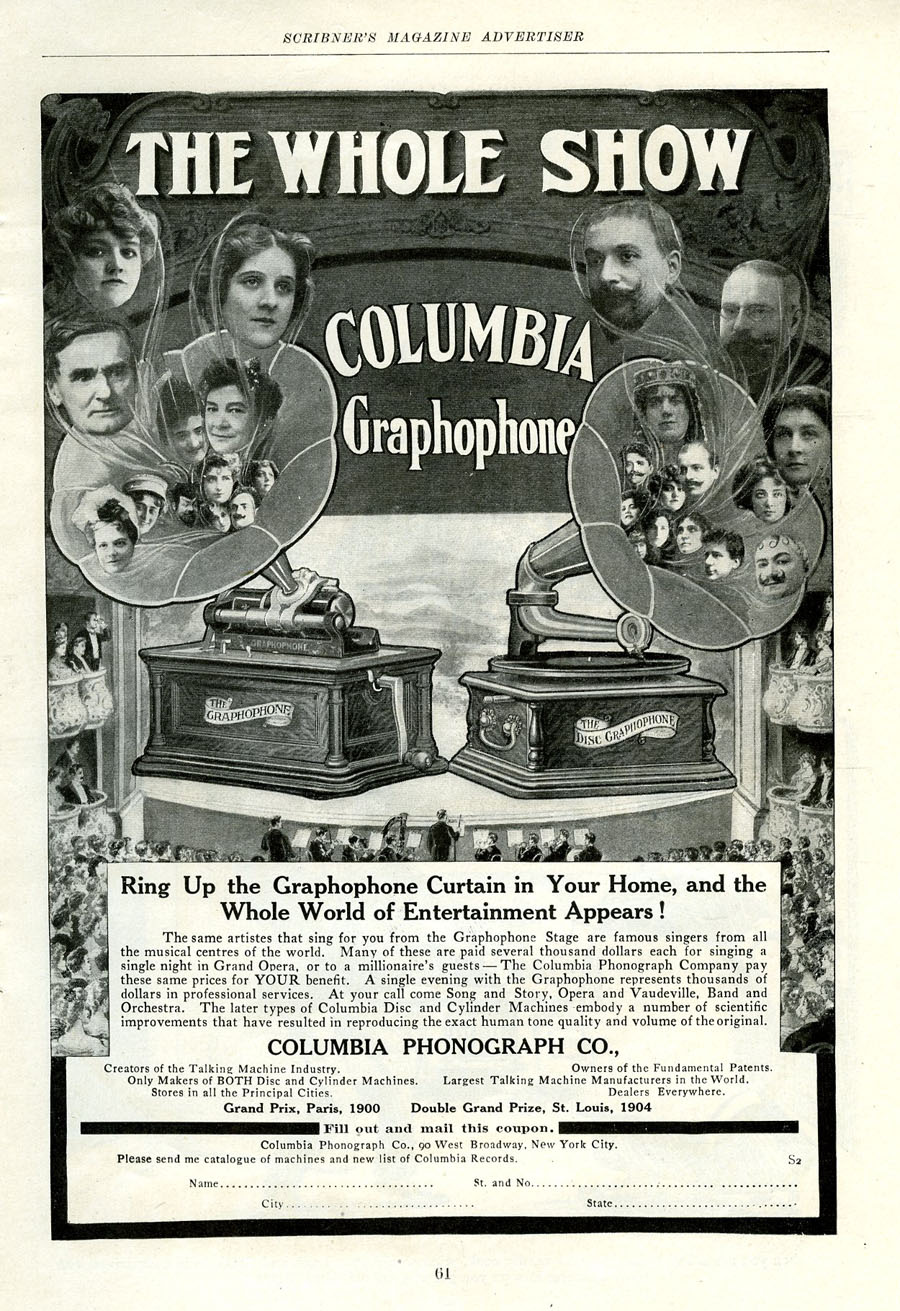
"Many of these are paid several
thousand dollars each for singing a single night in Grand Opera...
A single evening with the Graphophone represents thousands of dollars
in professional services." Columbia Phonograph Co., 1906
(PM-0929)
.
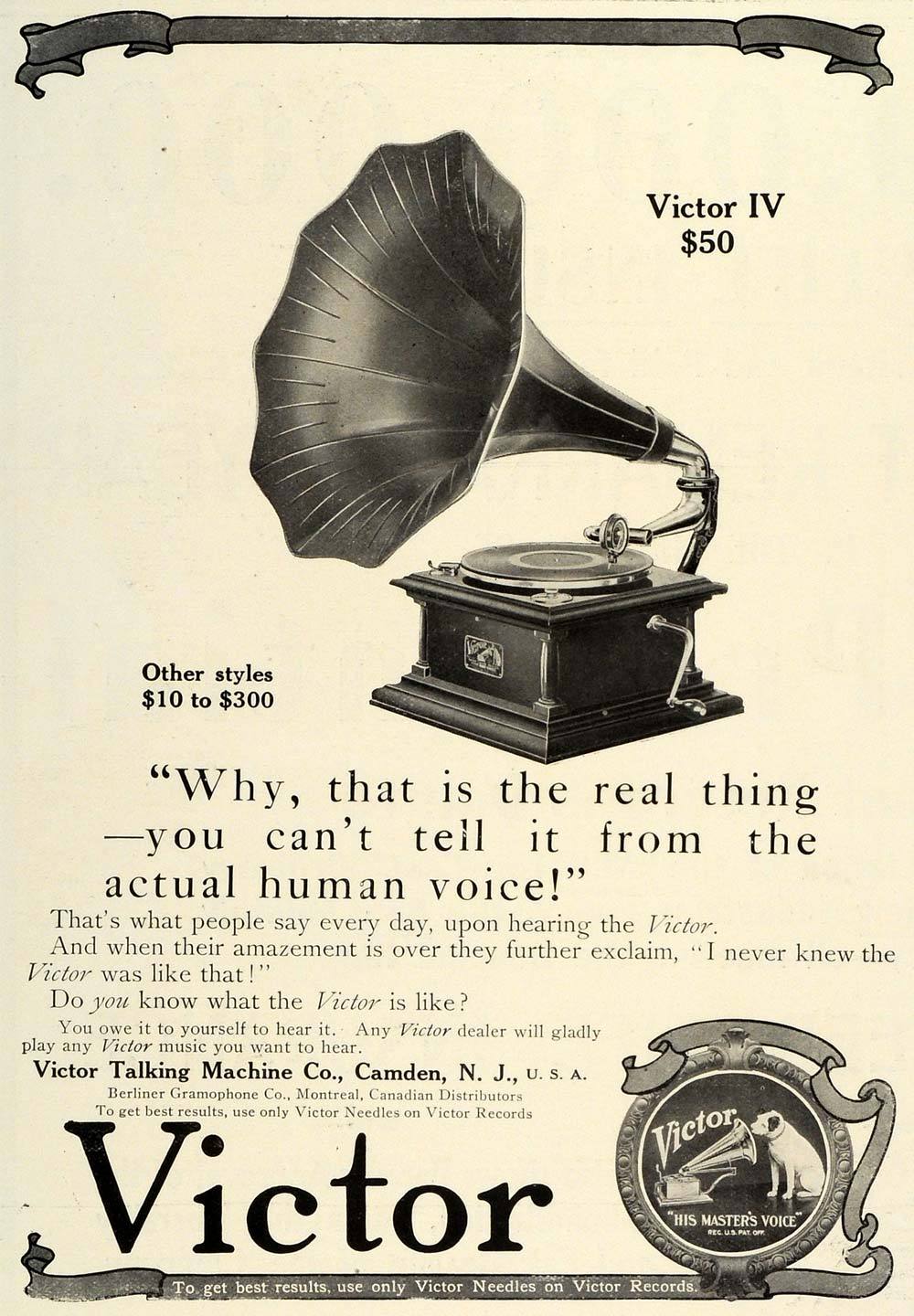
"the real thing --
you can't tell it from the actual human voice!" 1909
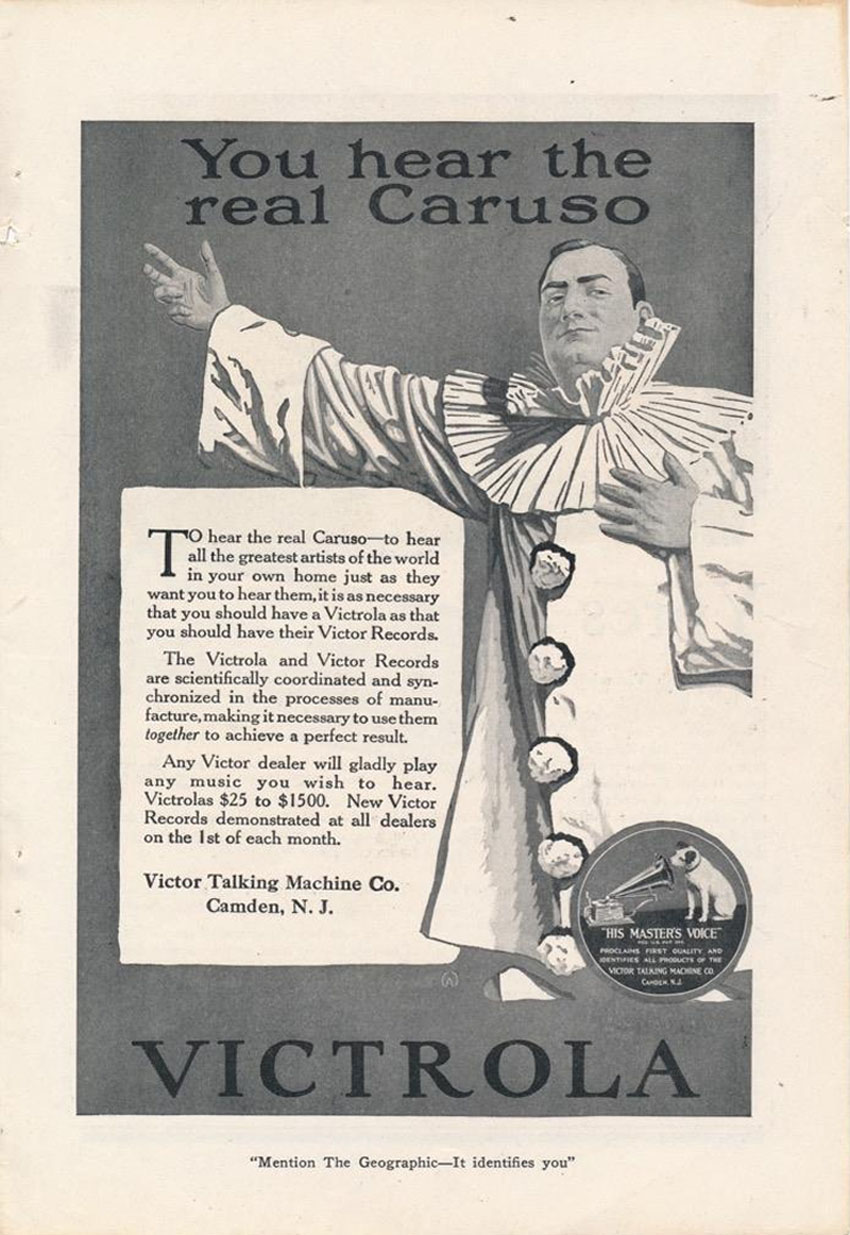
"You hear the real
Caruso..." The Geographic, 1920
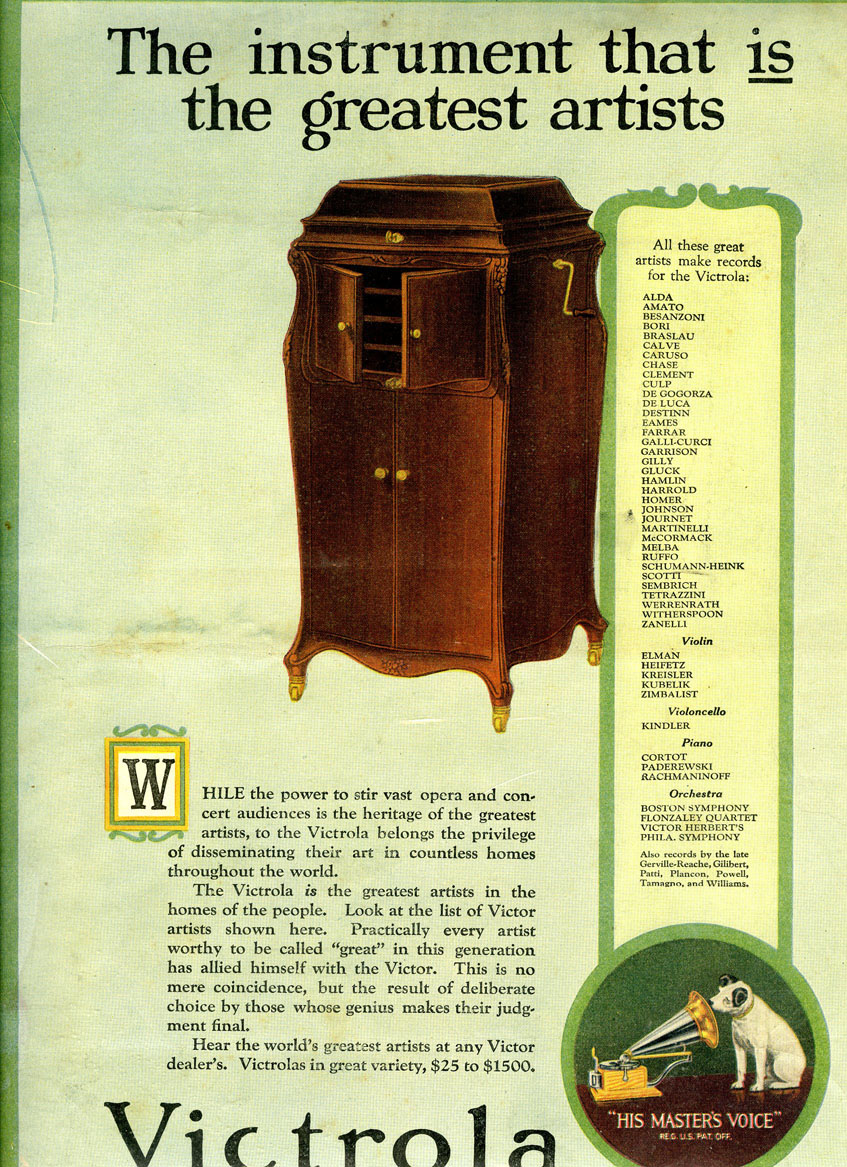
"Practically every artist worthy
to be called "great" in this generation has allied himself
with the Victor. This is no mere coincidence, but the result of deliberate
choice by those whose genius makes their judgment final. Victrola
1920
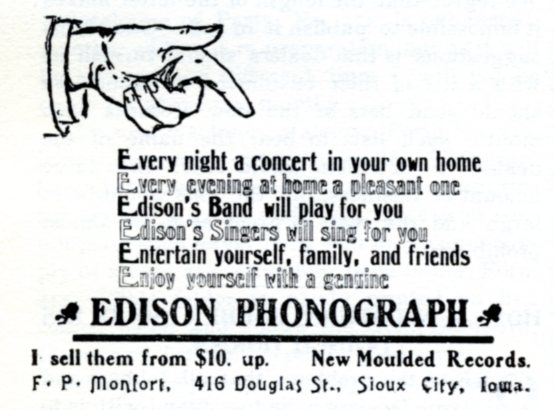
"Every night a
concert in your own home..."
Mailing Card example, April
1903, The Edison Phonograph Monthly
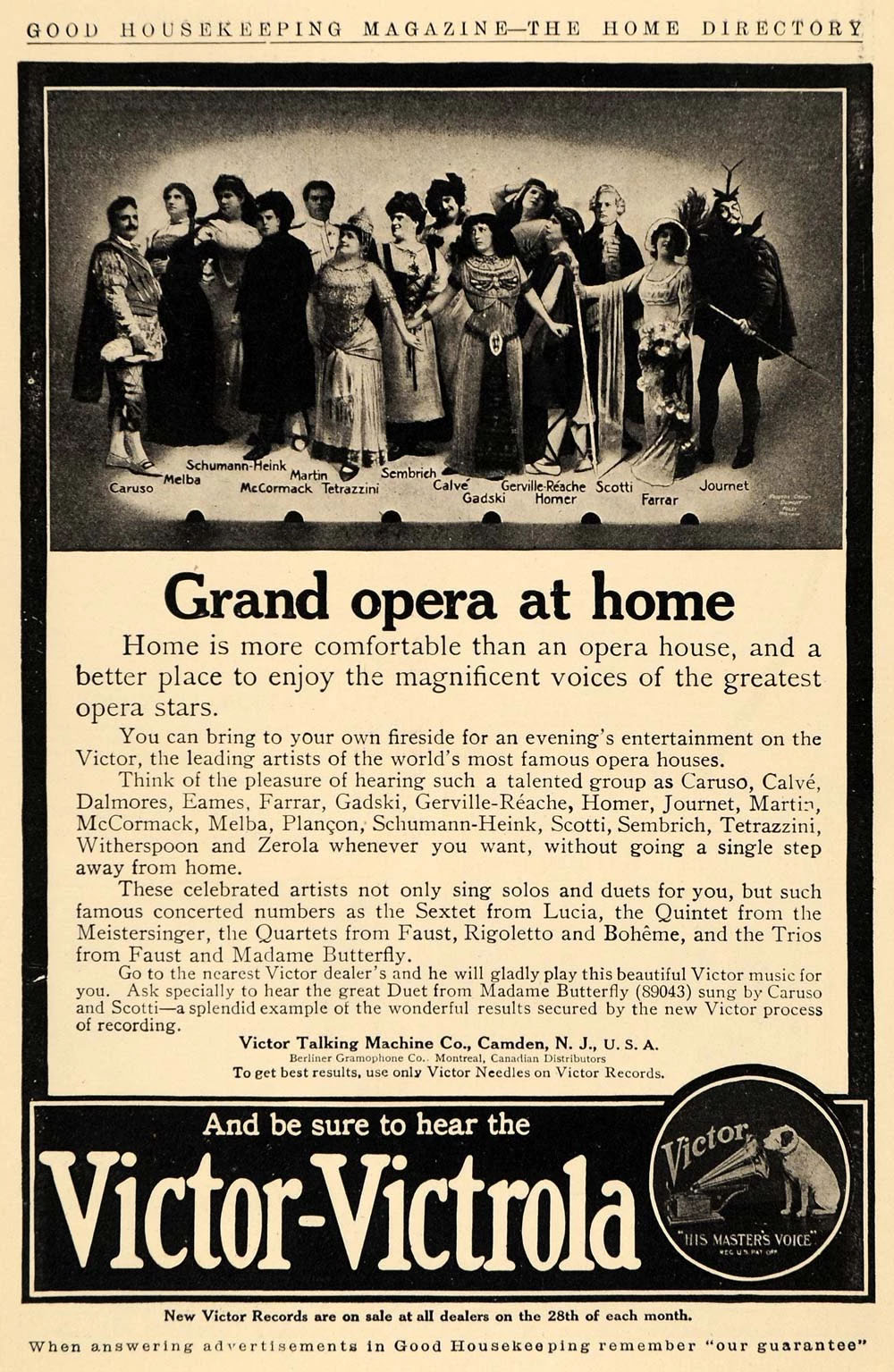
"Home is more comfortable than
an opera house, and a better place to enjoy the magnificent voices
of the greatest opera stars," 1910
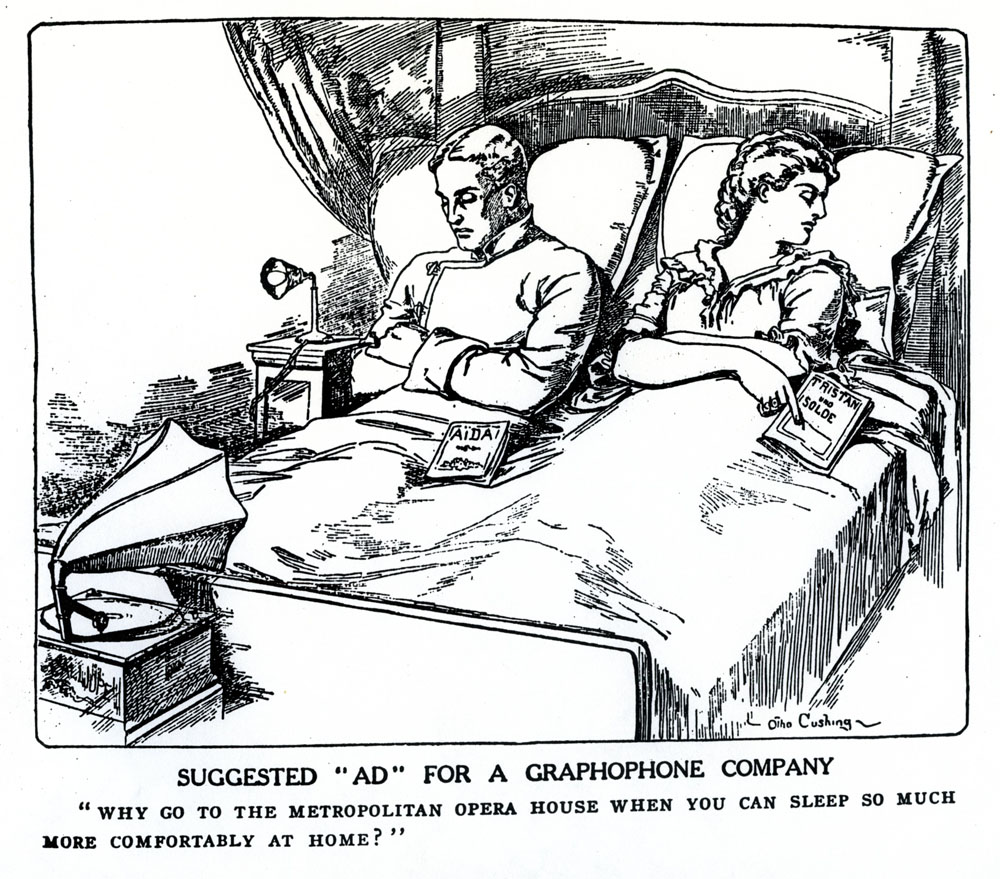
Artist:
Otho Cushing, Life Magazine, ca. 1910
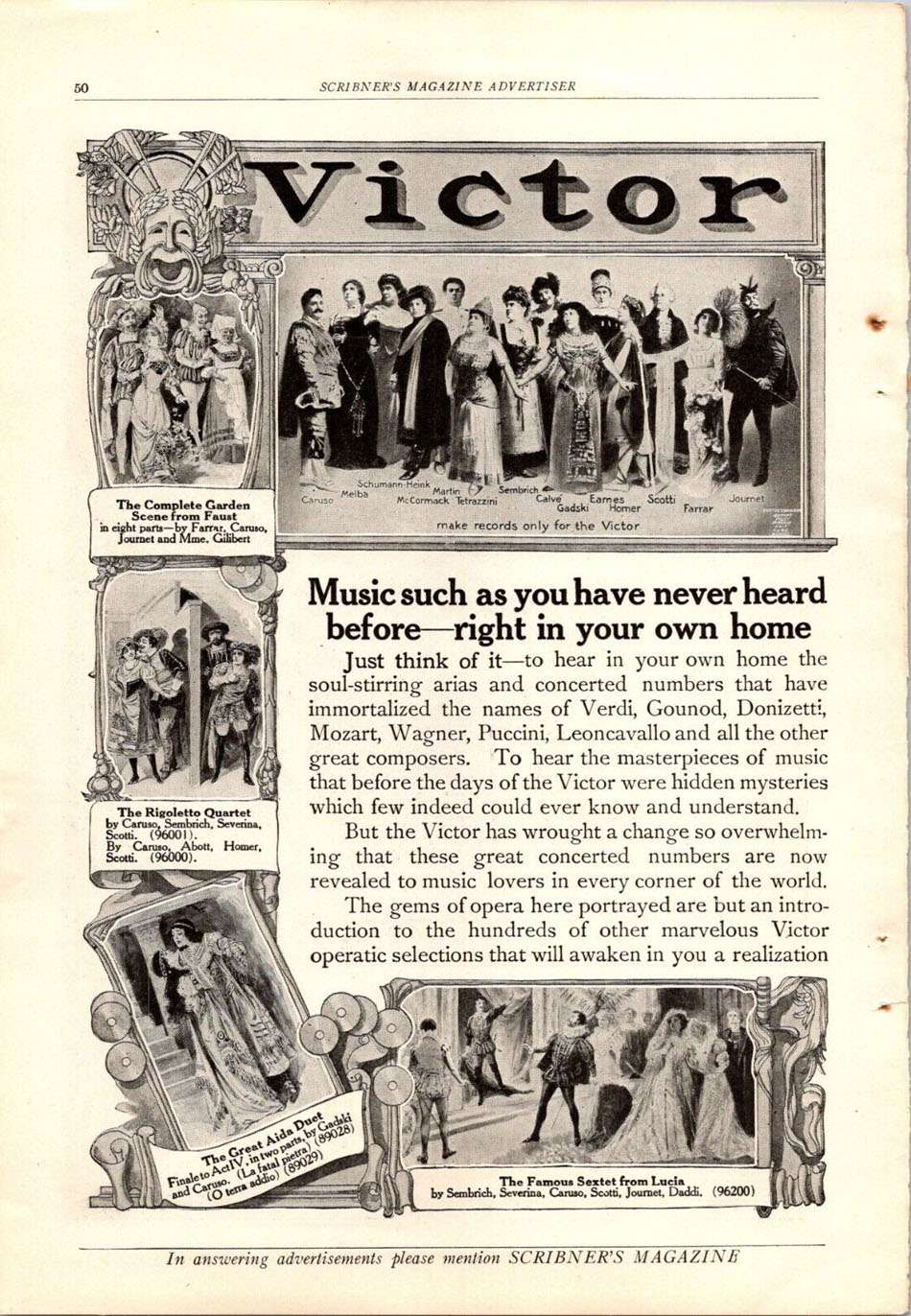
"Music
as you've never heard it before -- right in your own home." Scribner's
Magazine, 2-page ad, 1911
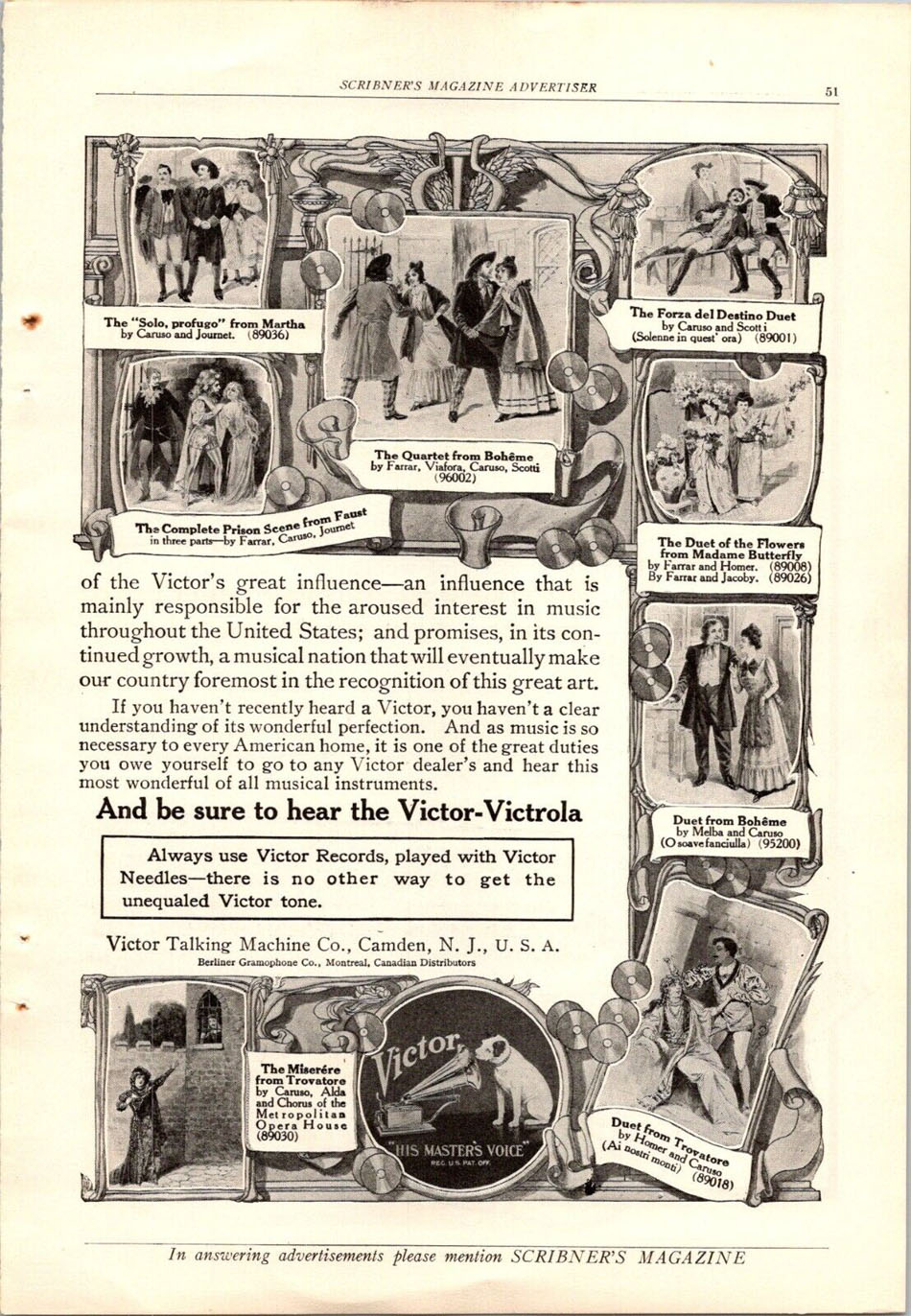
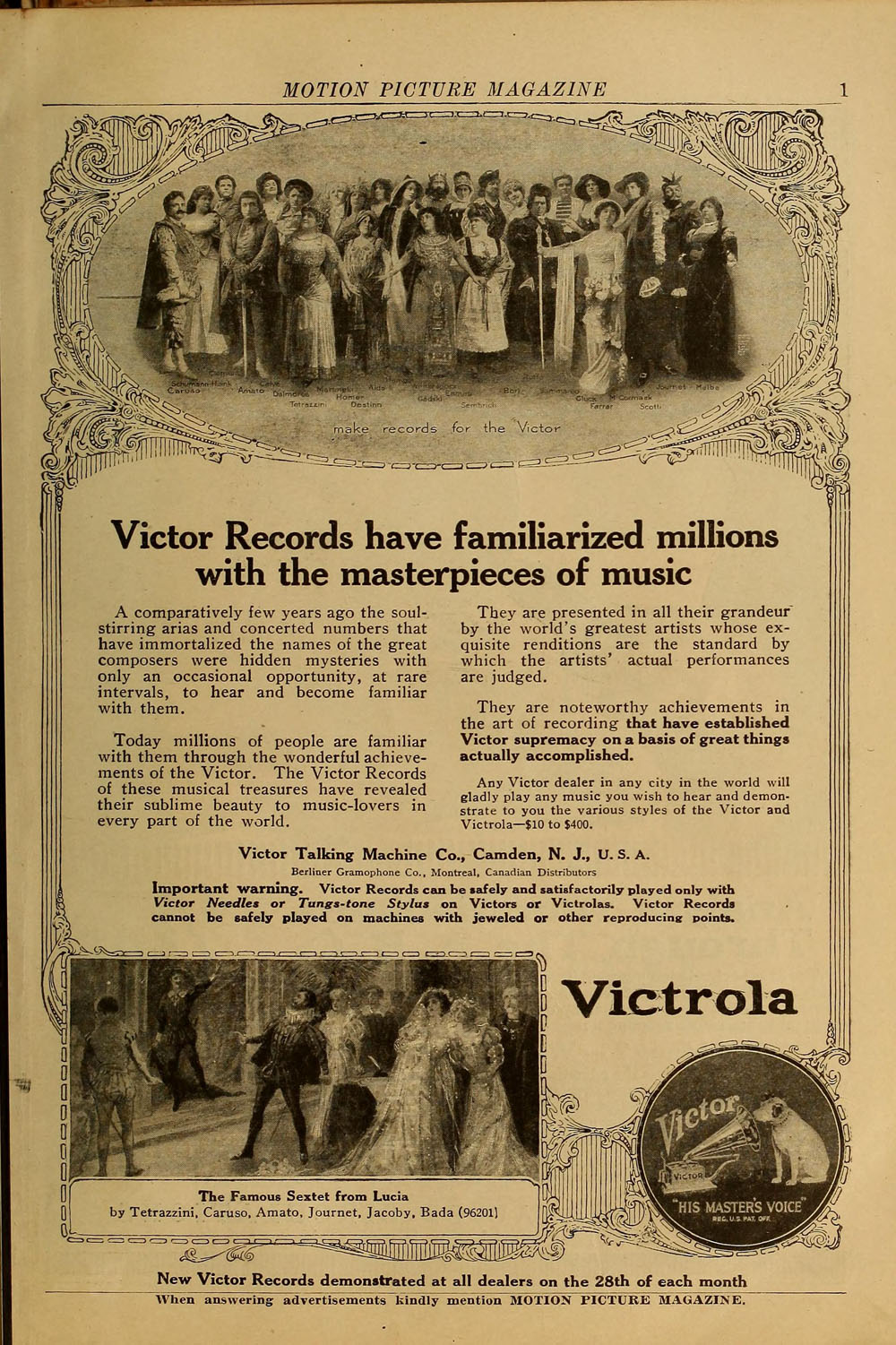
For most people, "the soul-stirring
arias and concerted numbers...were hidden mysteries." Today,
because of the Victor, millions are familiar with "these musical
treasures..." Motion Picture Magazine, 1916.
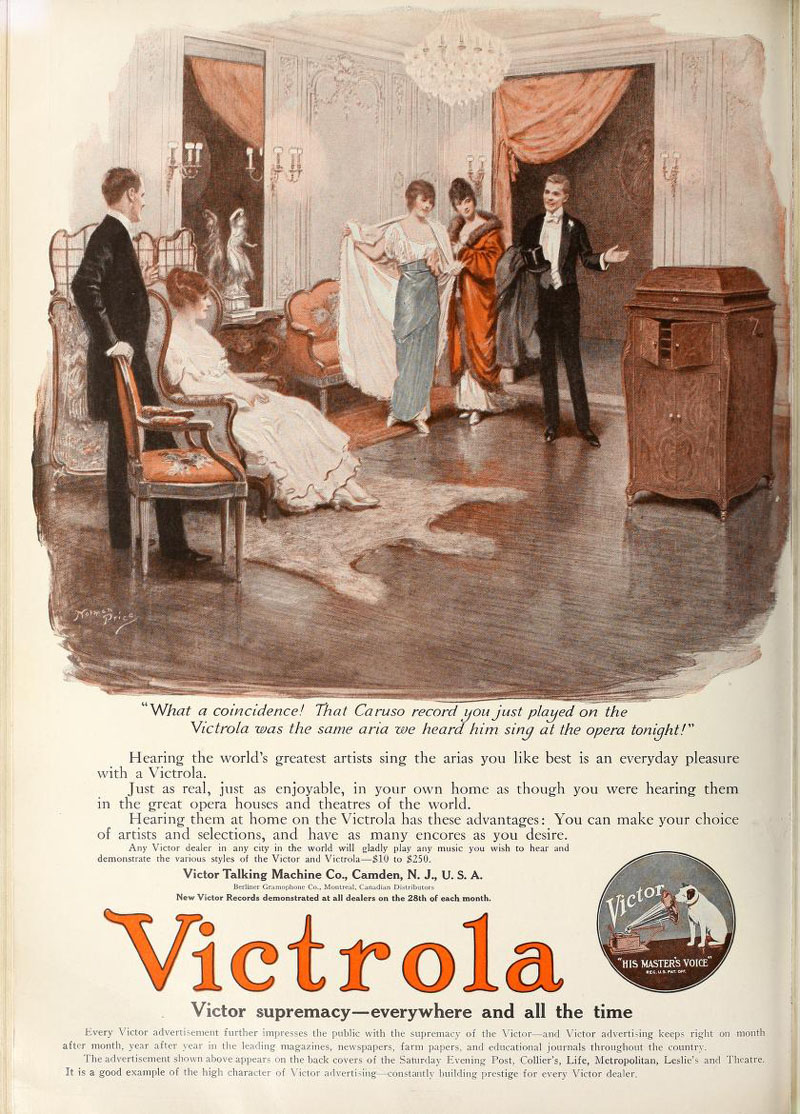
Talking Machine World,
1915
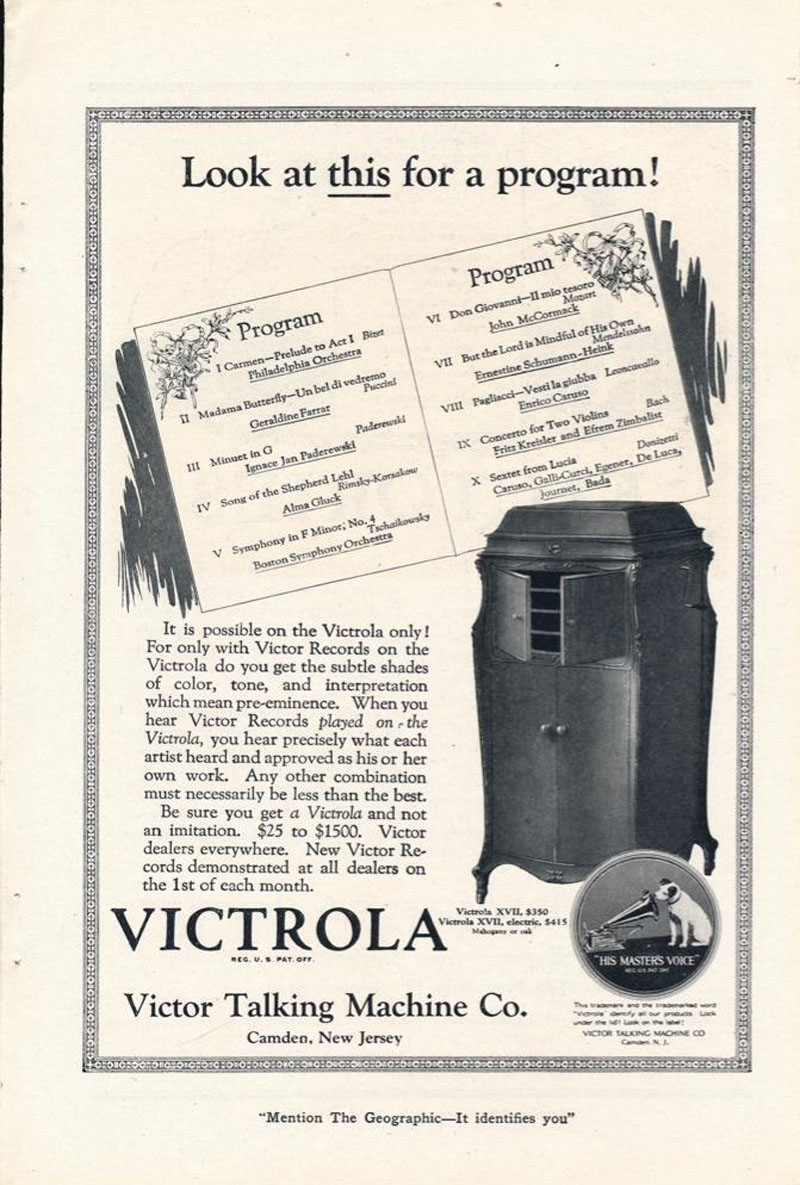
Look at this for a program!,
The Geographic, 1920
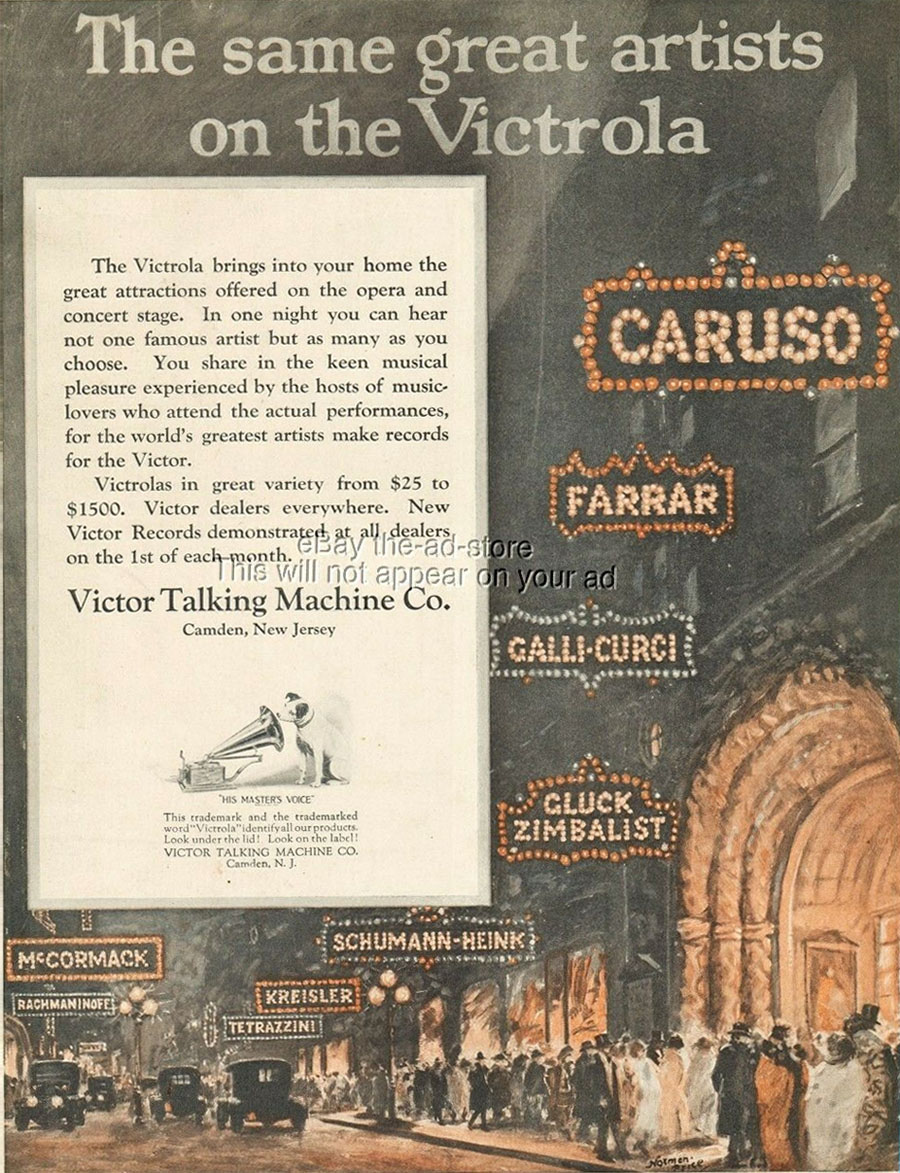
"The Victrola brings into your
home the great attractions offered on the opera and concert stage."
The Saturday Evening Post, 1921 - Artwork by Norman Price
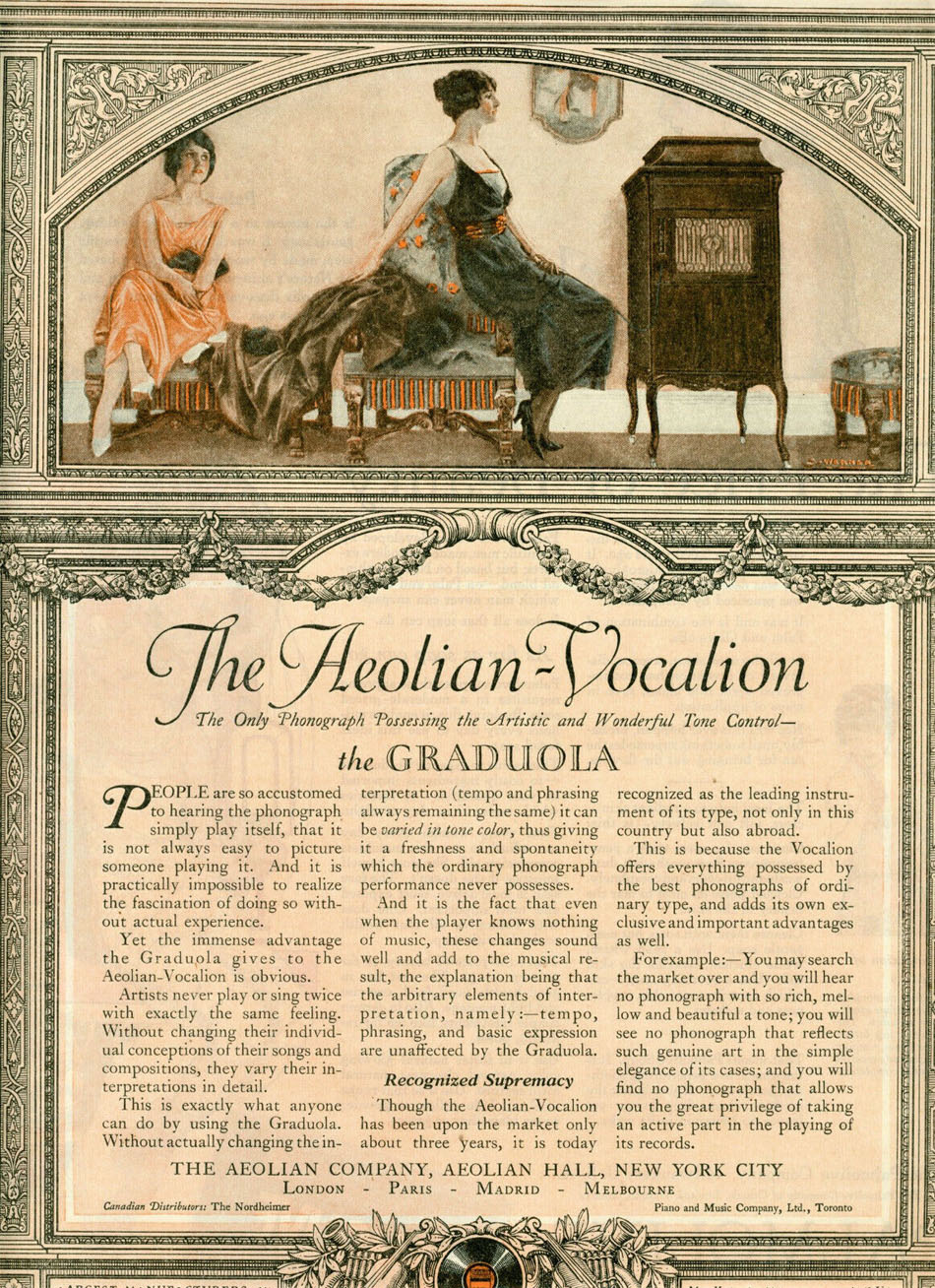
The Aeolian-Vocalion with
its "Graduola" allows you in your own home "the great
privilege of taking an active part in the play of its records."
You are able to vary "in tone color" the artists' performances
with the "Artistic and Wonderful Tone Control - the Graduola.
1921
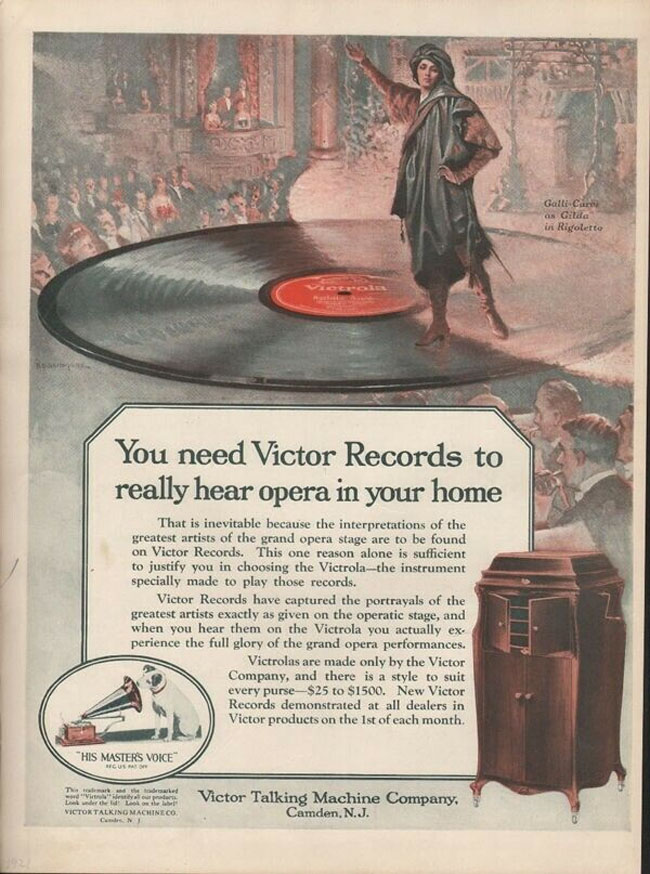
Victor Records needed "to
really hear opera in your home, 1921
"Victor Records have captured the
portrayals of the greatest artists exactly as given on the operatic
stage, and when you hear them on the Victrola you actually experience
the full glory of the grand opera performances."
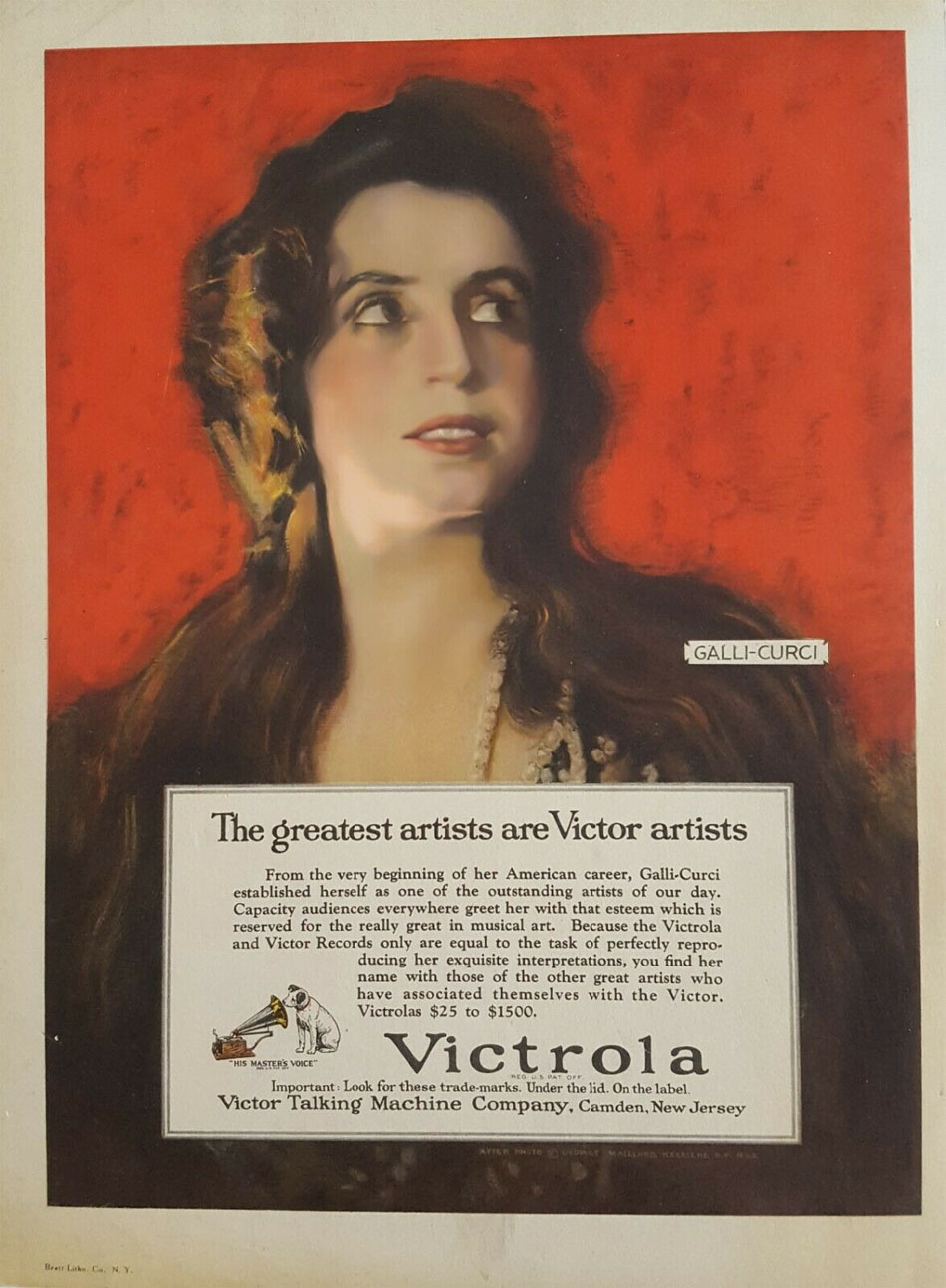
Galli-Curci is "one
of the outstanding artists of our day." "The greatest artists
are Victor artists." 1923
.
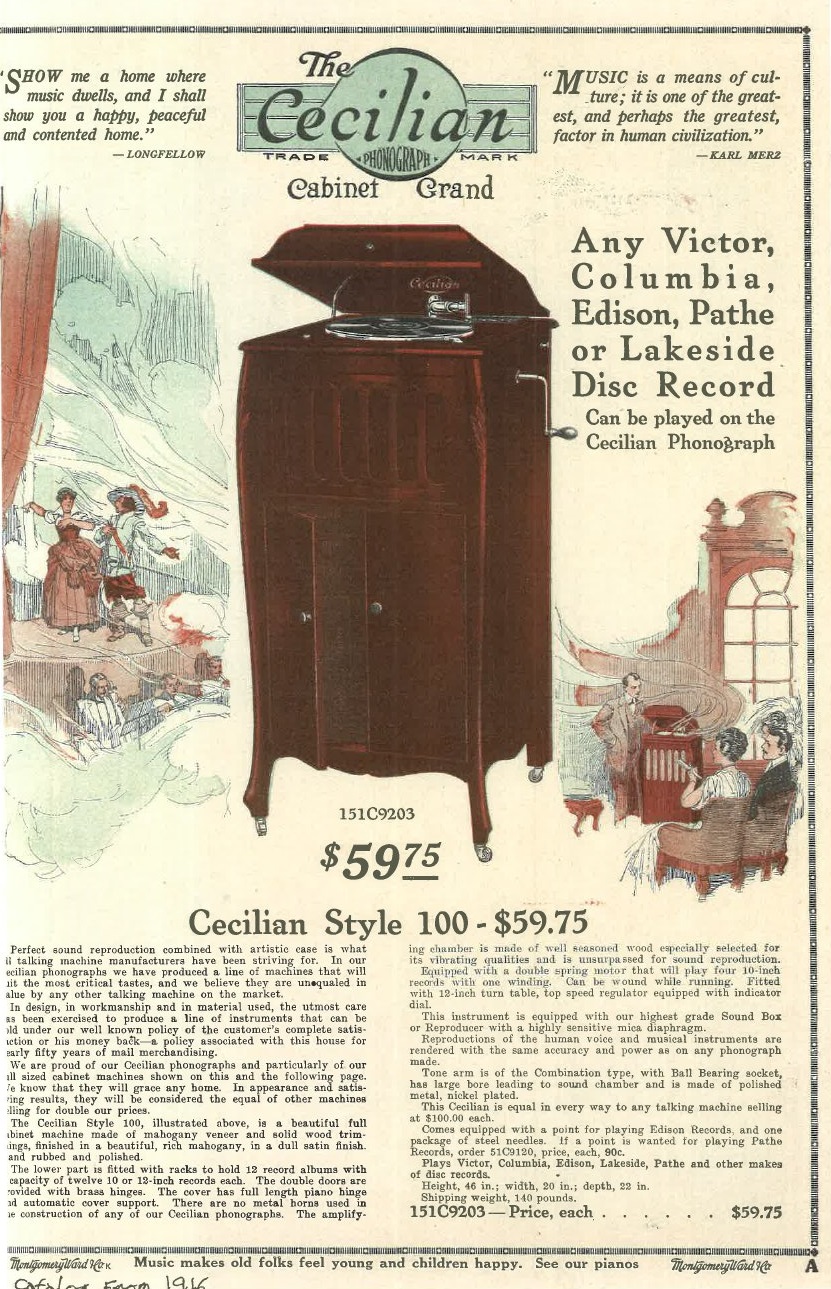
At the opera or at home
- Montgomery Ward Catalog 1916 (Courtesy of Antique Phonograph
Society )
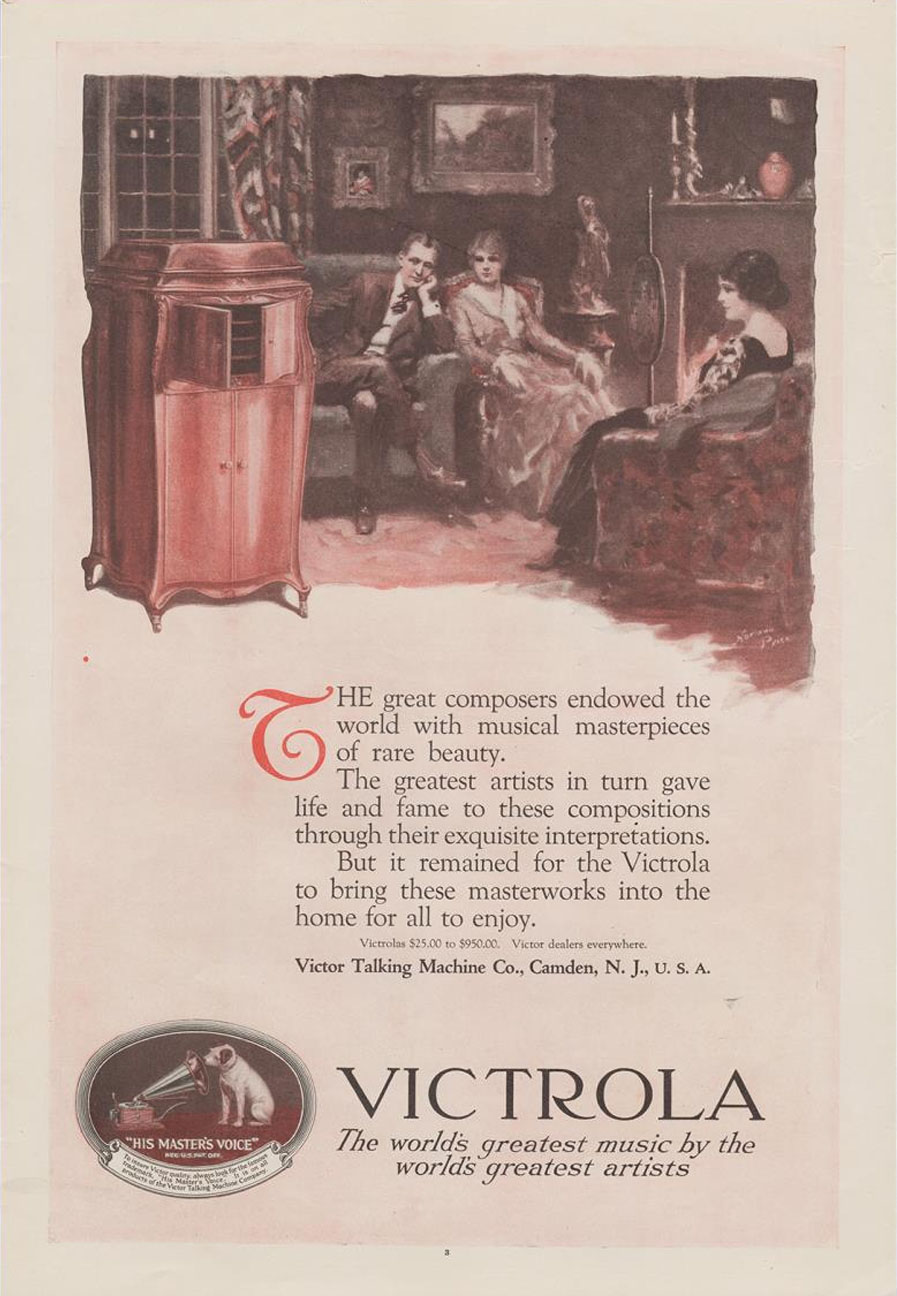
The Victrola brings the
"masterworks into the home for all to enjoy." 1920
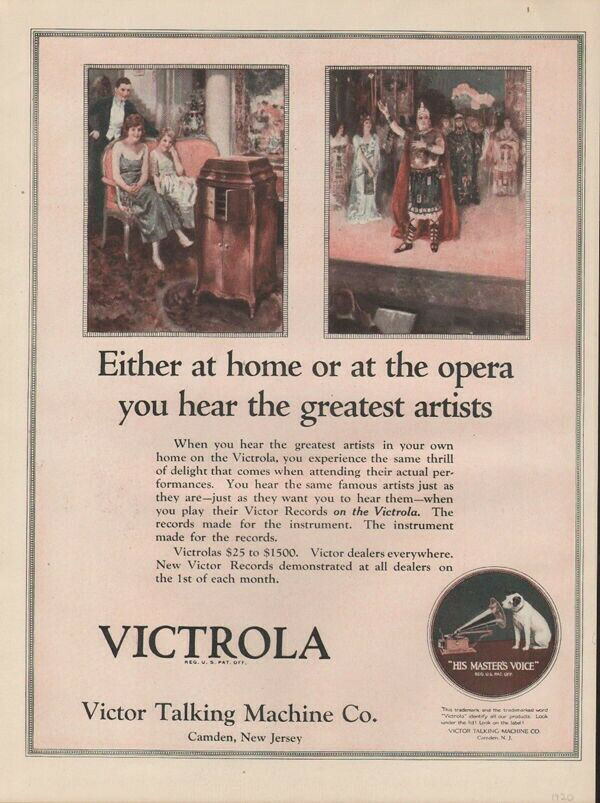
"You hear the greatest artists
in your own home on the Victrola, you experience the same thrill of
delight that comes when attending their actual performances."
Victrola, 1920
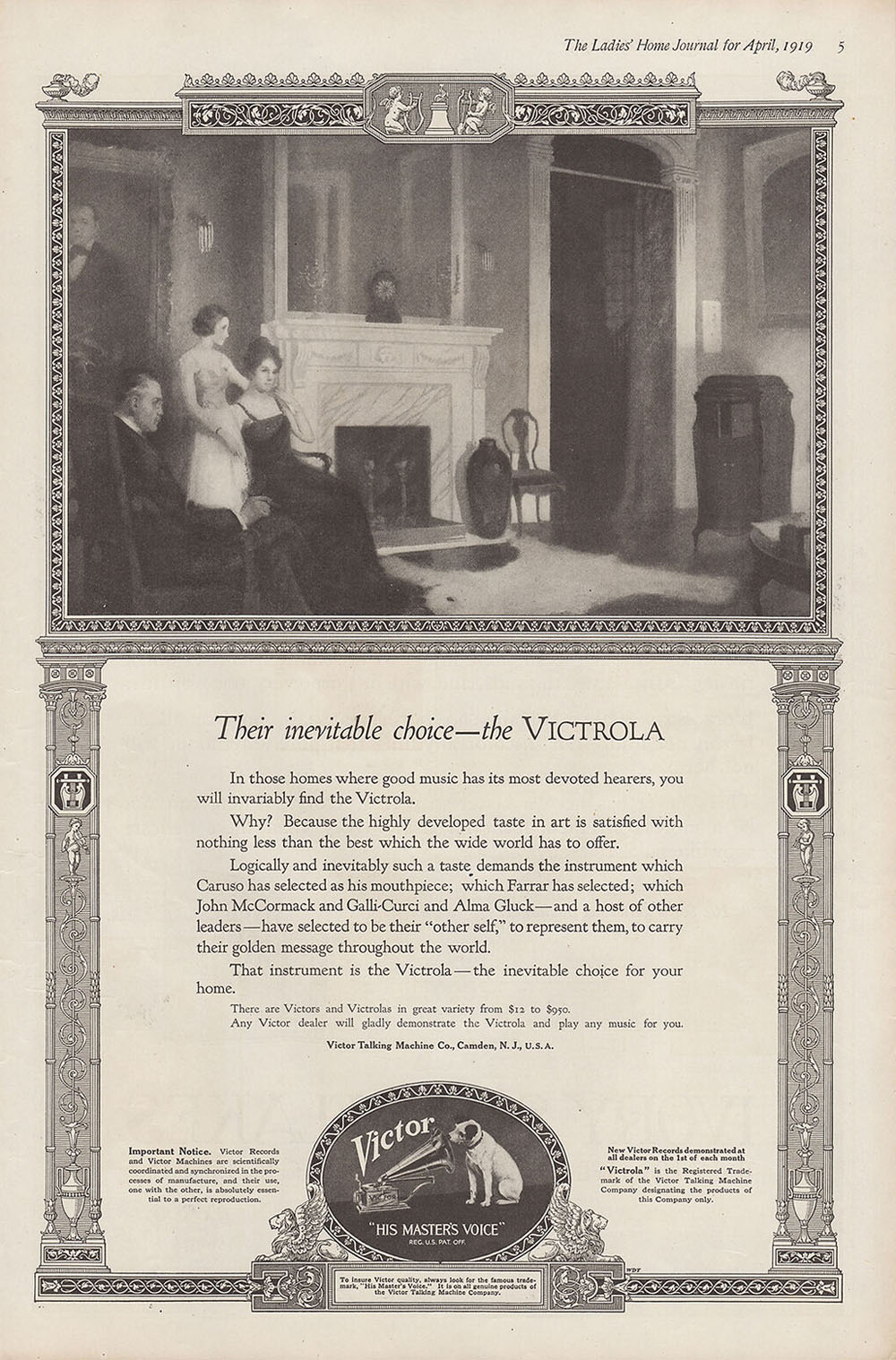
"In those homes where good music
has its most devoted hearers, you will invariably find the Victrola.
Why? Because the highly developed taste in art is satisfied with nothing
less than the best which the wide world has to offer." The
Ladies' Home Journal, April 1919

"For all great music
you need the Victrola," 1921 (PM-2021)
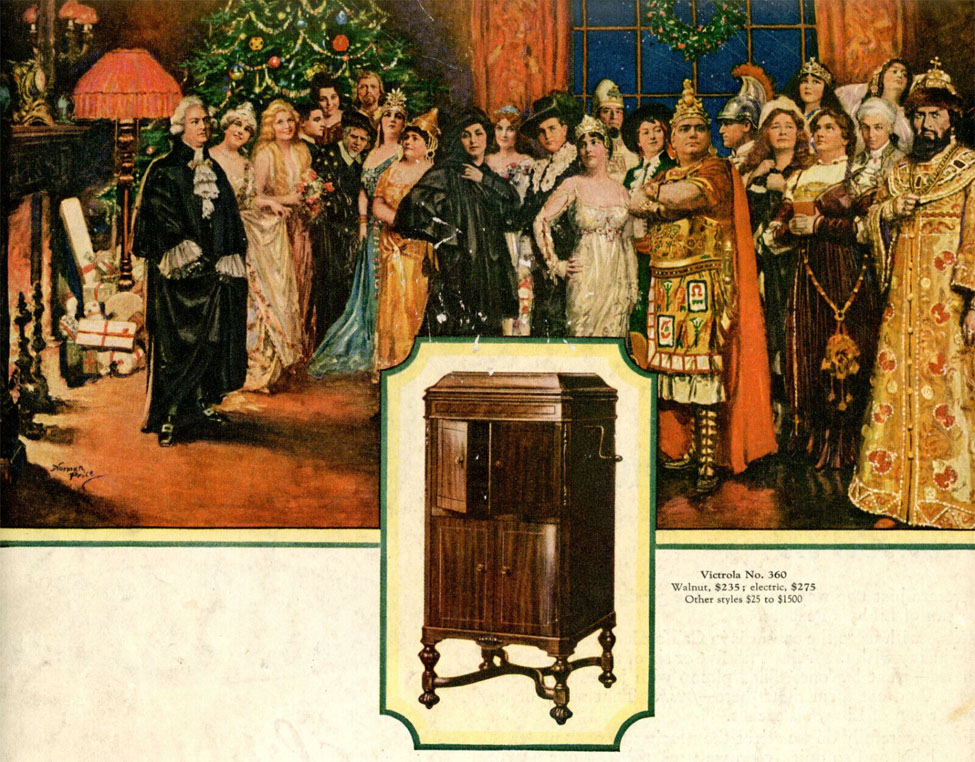
The Victrola No. 360, 1924
Farrar and Schuman-Heink, "The
finest gift of all - The gift that keeps on giving." (Top section
of Victor Christmas ad).

The New Orthophonic Victrola
brings into your home music unparalleled in beauty..." The Ladies'
Home Journal, May 1926
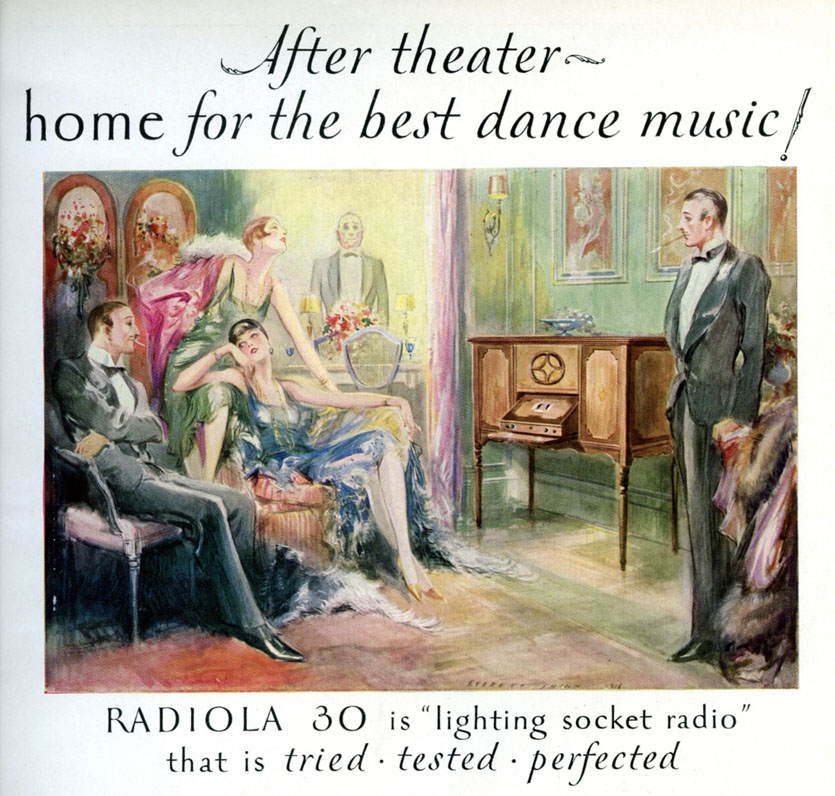
RCA Radiola, 1926 (PM-1989)
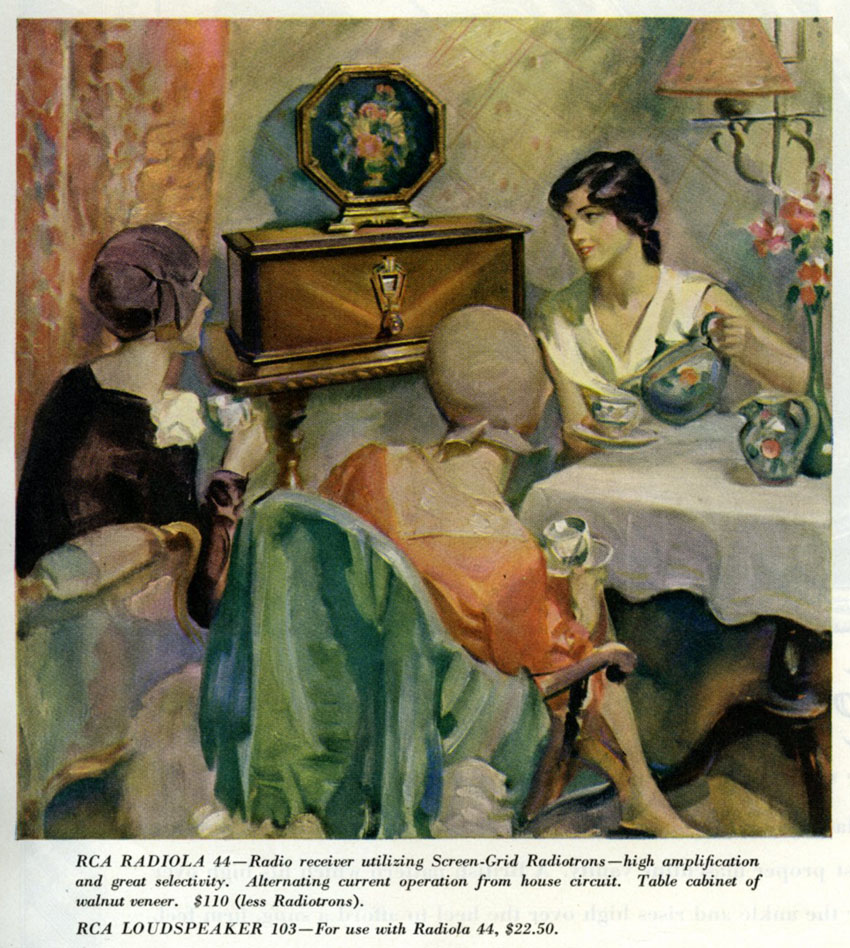
RCA Radiola, The Saturday
Evening Post, 1929 (PM-1994)

"The Artist in
Reality" - L'Artiste, 1929
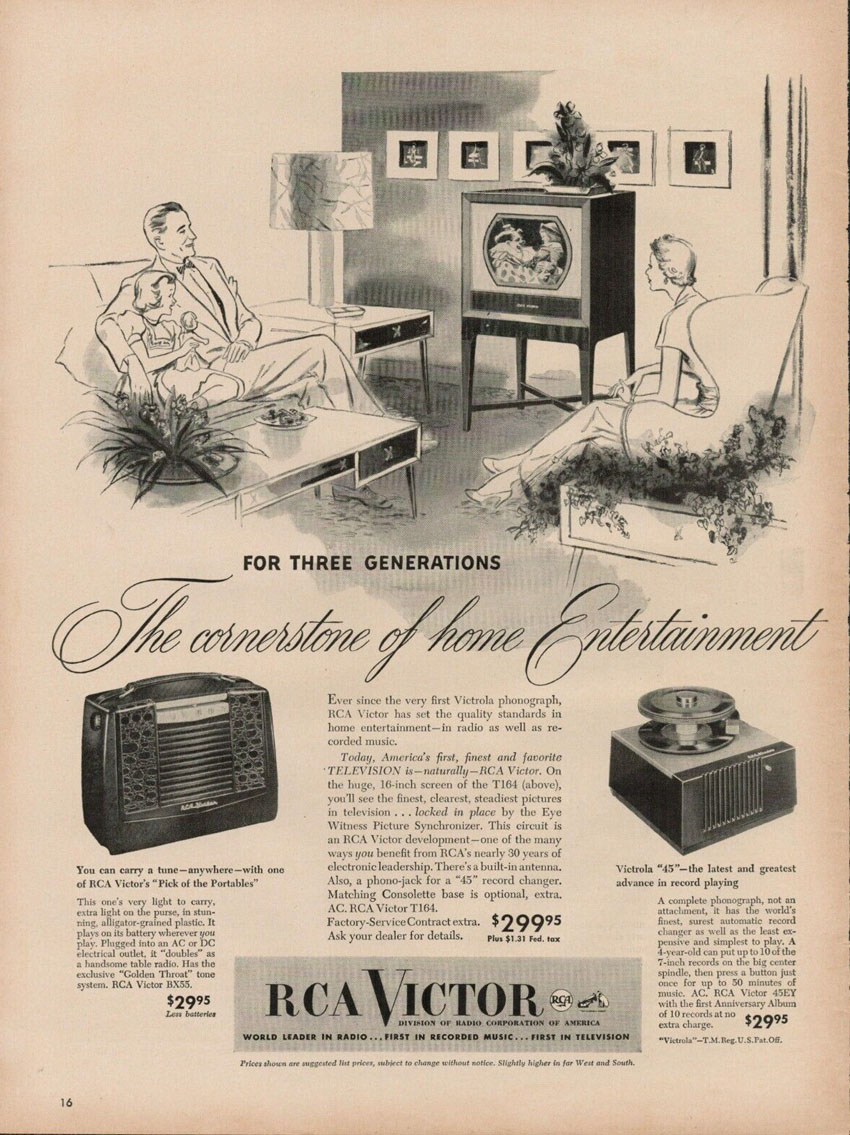
The cornerstone of home
Entertainment for Three Generations, May 29, 1950
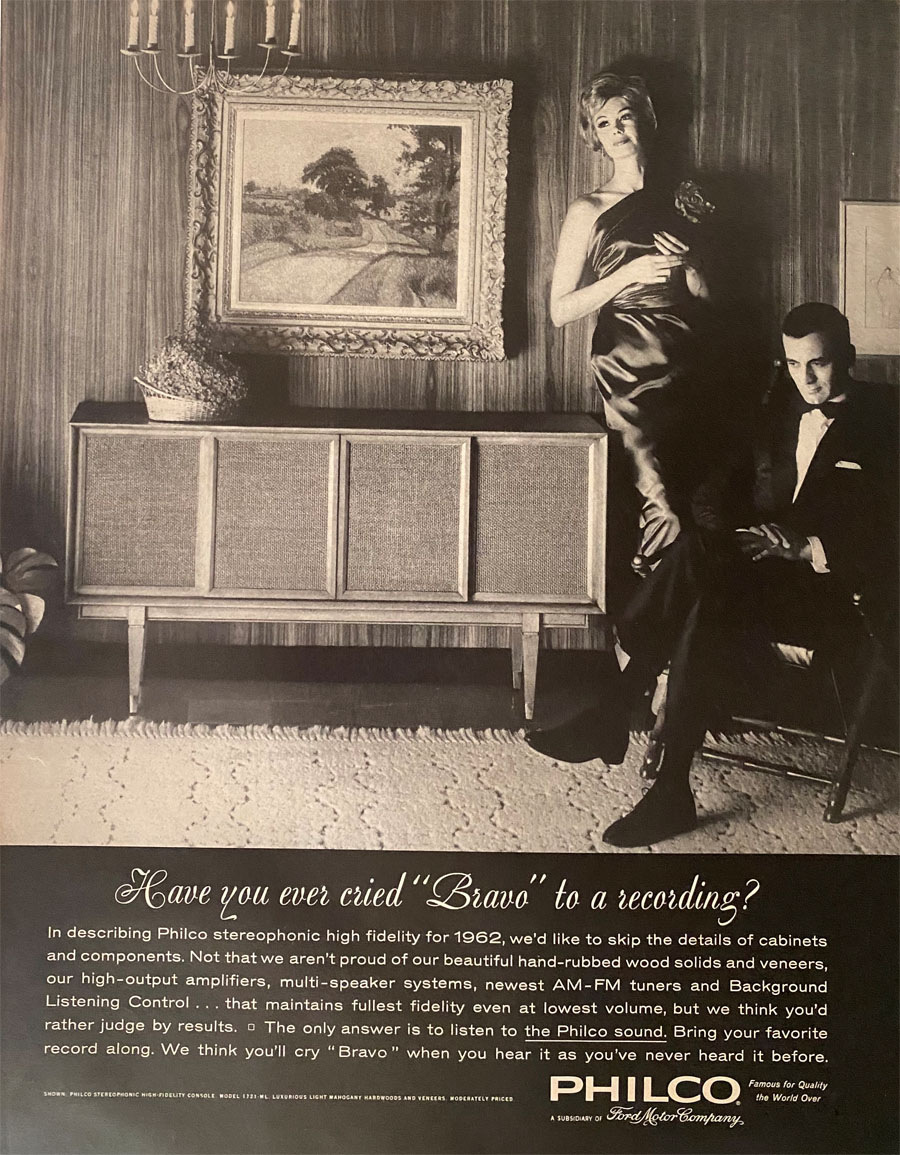
"Have you ever cried
"Bravo" to a recording?" Hear your favorite record "as
you've never heard it before."
Philco - Famous for
Quality the World Over, Life 1962

Phonographia
|
